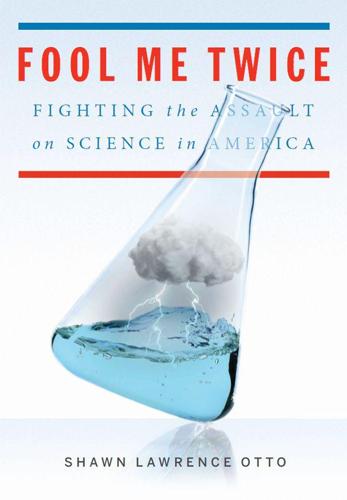
Fool Me Twice: Fighting the Assault on Science in America
by
Shawn Lawrence Otto
Published 10 Oct 2011
New York Times, December 5, 2009. www.nytimes.com/2009/12/06/opinion/06pubed.html?scp=54&sq=climategate&st=nyt. 70. Richert, C. Inhofe Claims That E-Mails “Debunk” Science Behind Climate Change. Politifact.com, December 11, 2009. http://politifact.com/truth-o-meter/statements/2009/dec/11/james-inhofe/inhofe-claims-cru-e-mails-debunk-science-behind-cl. 71. Henig, J. “Climategate”: Hacked E-Mails Show Climate Scientists in a Bad Light but Don’t Change Scientific Consensus on Global Warming. FactCheck.org, December 10, 2009. www.factcheck.org/2009/12/climategate. 72. Borenstein, S., et al. Review: E-Mails Show Pettiness, Not Fraud.
…
Review: E-Mails Show Pettiness, Not Fraud. Associated Press, December 12, 2009. www.msnbc.msn.com/id/34392959/ns/us_news-environment. 73. McClatchy Washington Bureau. Commentary: “Climategate” Is a Lesson in the Politics of Science. McClatchy Newspapers, December 15, 2009. www.mcclatchydc.com/2009/12/15/v-print/80663/commentary-climategate-is-a-lesson.html. [opinion] 74. Sensenbrenner, F. J. Sensenbrenner Urges IPCC to Exclude Climategate Scientists. Letters from the Select Committee on Energy Independence and Global Warming, December 8, 2009. http://republicans.globalwarming.house.gov/Press/PRArticle.aspx?NewsID=2749. 75.
…
BBC News, December 5, 2009. http://news.bbc.co.uk/2/hi/south_asia/8387737.stm. 81. US Senate Committee on Environment and Public Works Minority Staff. “Consensus” Exposed: The CRU Controversy. Washington, DC: US Senate, 2010. 82. Laing, A. “Climategate” Professor Phil Jones “Considered Suicide over Email Scandal.” Daily Telegraph, February 7, 2010. www.telegraph.co.uk/earth/environment/climatechange/7180154/Climategate-Professor-Phil-Jones-considered-suicide-over-email-scandal.html. 83. Schneider, S. Science as a Contact Sport. Washington, DC: National Geographic Society, 2009. 84. Fogarty, D. Climate Debate Gets Ugly as World Moves to Curb CO2.
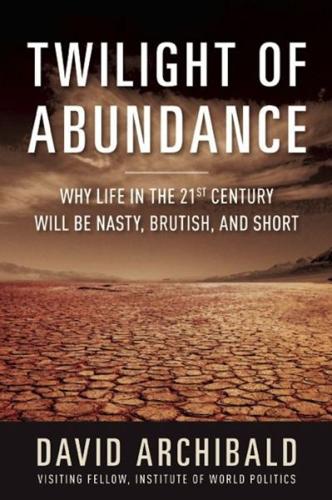
Twilight of Abundance: Why the 21st Century Will Be Nasty, Brutish, and Short
by
David Archibald
Published 24 Mar 2014
And their moral bankruptcy in promoting the notion of global warming using apparently fraudulent statistics is reprehensible; hopefully they will be duly punished, in this world or the next. The history of the global warming fraud has been detailed in a number of books published recently, including a number on the Climategate emails alone. One good analysis of the malfeasance of the climate scientists is The Delinquent Teenager Who Was Mistaken for the World’s Top Climate Expert, published by Canadian investigative journalist Donna Laframboise in 2011.18 One of the earliest Climategate emails shows how the results of research were tailored to a political agenda. On July 29, 1999, Adam Markham of WWF (a non-government organization formerly known as the World Wildlife Fund) wrote to University of East Anglia climate scientists Mike Hulme and Nicola Sheard about a paper that Hulme and Sheard had written about climate change in Australasia: “I’m sure you will get some comments direct from Mike Rae in WWF Australia, but I wanted to pass on the gist of what they’ve said to me so far.
…
Humlum, “The Long Sunspot Cycle 23 Predicts a Significant Temperature Decrease in Cycle 24,” Journal of Atmospheric and Solar-Terrestrial Physics 80, May 2012. 6.James Delingpole, “Lovelock Goes Mad for Shale Gas,” Telegraph, June 16, 2012, http://blogs.telegraph.co.uk/news/jamesdelingpole/100165783/lovelock-goes-mad-for-shale-gas/. Chapter 2: A Less Giving Sun 1.John Costella, ed., The Climategate Emails (Melbourne, Victoria: Lavoisier Group, March 2010), http://www.lavoisier.com.au/articles/greenhouse-science/climate-change/climategate-emails.pdf. 2.Henrik Svensmark and Eigil Friis-Christensen, “Variation of Cosmic Ray Flux and Global Cloud Coverage—a Missing Link in Solar-Climate Relationships,” Journal of Atmospheric and Solar-Terrestrial Physics 59 (1997): 1225. 3.Eigil Friis-Christensen and Knud Lassen, “Length of the Solar Cycle: An Indicator of Solar Activity Closely Associated with Climate,” Science 254 (1991): 698–700. 4.C.
…
The more carbon dioxide we can put into the atmosphere, the better life on Earth will be for human beings and all other living things. If all that is true, you will ask, how is it that the United Nations–derived Intergovernmental Panel on Climate Change (IPCC) came up with its ice cap–melting prediction of a 6°C increase in average global temperature by the end of this century? The notorious Climategate emails,1 released on November 20, 2009, appear to show scientists manipulating data to produce the answers they desired, bullying those who disagreed with them, plotting against scientific journal editors, and deliberately concocting misleading figures, among other apparent acts of willful malfeasance.
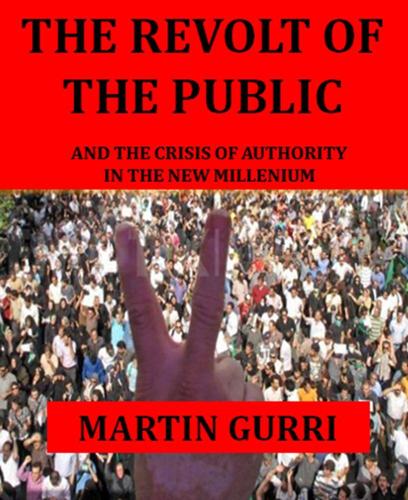
The Revolt of the Public and the Crisis of Authority in the New Millennium
by
Martin Gurri
Published 13 Nov 2018
[95] The Climategate Emails, John Costella, ed., (The Levoisier Group, March 2010), http://www.lavoisier.com.au/articles/greenhouse-science/climate-change/climategate-emails.pdf. [96] Ibid., 10. [97] Ibid., 30. [98] Ibid., 34. [99] Ibid., 33. [100] Ibid., 34. [101] Ibid., 12. [102] Ibid., 144. [103] Ibid., 89. [104] Ibid., 57. [105] Ibid., 129. [106] James Delingpole was the author. http://blogs.telegraph.co.uk/news/jamesdelingpole/100017393/climategate-the-final-nail-in-the-coffin-of-anthropogenic-global-warming/ [107] “Colleague defends ‘ClimateGate’ professor,” BBC, December 4, 2009, http://news.bbc.co.uk/2/hi /8396035.stm
…
Innosight Executive Briefing, Winter 2012. http://www.innosight.com/innovation-resources/strategy-innovation/upload/creative-destruction-whips-through-corporate-america_final2012.pdf. “Declaration of the Occupation of New York City.” r/Politics, no date. http://www.reddit.com/r/politics/comments/kv84b/this_is_the_declaration_of_the_occupation_of_new/. Delingpole, James. “Climategate: The final nail in the coffin of ‘Antropogenic Global Warming’?” The Telegraph, November 20, 2009. http://blogs.telegraph.co.uk/news/jamesdelingpole/100017393/climategate-the-final-nail-in-the-coffin-of-anthropogenic-global-warming/. Dollar, John. “The Man Who Predicted an Earthquake.” The Guardian, April 5, 2010. http://www.theguardian.com/world/2010/apr/05/laquila-earthquake-prediction-giampaolo-giuliani.
…
Coverage of the CRU emails played out in an erratic manner typical of the global information sphere. Mass media, uncertain what to make of the story, at first shied away from it, but the content of the emails exploded across the blogosphere, beginning with the vital community around Climate Audit. On November 20, The Telegraph published a tendentious column titled “Climategate: The final nail in the coffin of ‘Anthropogenic Climate Change?’”[106] With that, the incident received its permanent, if unimaginative, name. The news media now rushed in, with the slant of coverage wholly dependent on the source’s editorial line on man-made climate change. CRU scientists, just as unimaginatively, insisted they had been taken out of context, and that the episode unmasked a campaign of “character assassination” conducted by “skeptics.”[107] The consequences were uncertain.
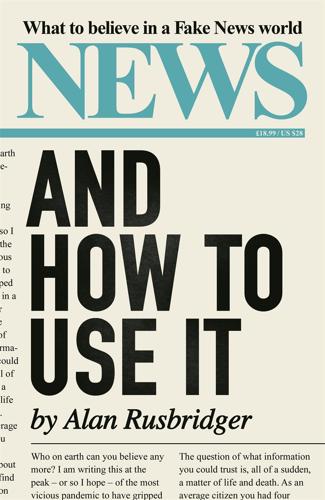
News and How to Use It: What to Believe in a Fake News World
by
Alan Rusbridger
Published 26 Nov 2020
<https://www.pulitzer.org/winners/david-barstow-susanne-craig-and-russ-buettner-new-york-times> ‘About Us’. Spaceship Media. n.d. <https://spaceshipmedia.org/about/> Abramson, Jill. Merchants of Truth: The Business of News and the Fight for Facts. New York: Simon & Schuster, 2019. Adam, David. ‘“Climategate” review clears scientists of dishonesty over data’. The Guardian, 7 July 2010. <https://www.theguardian.com/environment/2010/jul/07/climategate-review-clears-scientists-dishonesty> Adam, David. ‘Confidence in climate science remains strong, poll shows’. The Guardian, 11 June 2010. <https://www.theguardian.com/environment/2010/jun/11/confidence-climate-science-poll> Addison, Adrian.
…
‘Offshore secrets: UK property purchases – interactive map’. The Guardian, 26 November 2012. <http://www.theguardian.com/uk/interactive/2012/nov/26/offshore-secrets-uk-property-purchases-interactive-map> Leiserowitz, A., E. Maibach, C. Roser-Renouf, N. Smith and E. Dawson. ‘Climategate, Public Opinion, and the Loss of Trust’. American Behavioral Scientist, 13 September 2012. <https://climatecommunication.yale.edu/publications/climategate-public-opinion-and-the-loss-of-trust/> Lemon, Jason. ‘Over 70% of Americans Prefer a National Quarantine as Trump Eyes Lifting Restrictions by Easter, Poll Shows’. Newsweek, 25 March 2020. <https://www.newsweek.com/over-70-americans-prefer-national-quarantine-trump-eyes-lifting-restrictions-easter-pollshows-1494174> Leopold, Jason, Emma Loop, Zoe Tillman, Anthony Cormier and Ellie Hall.
…
NPR Special Series: The Coronvirus Crisis, 17 March 2020. <https://www.npr.org/2020/03/17/816680033/poll-americans-dont-trust-what-they-re-hearing-from-trump-on-coronavirus> Morello, Lauren. ‘“Climategate” Scientist Admits “Awful E-Mails,” but Peers Say IPCC Conclusions Remain Sound’. The New York Times, 2 March 2010. <https://archive.nytimes.com/www.nytimes.com/cwire/2010/03/02/02climatewire-climategate-scientist-admits-awful-e-mails-b-66224.html?pagewanted=1> Mullin, Chris. ‘We’ll All Be Murdered in Our Beds: The Shocking History of Crime Reporting in Britain by Duncan Campbell – review’. The Observer, 23 May 2016.
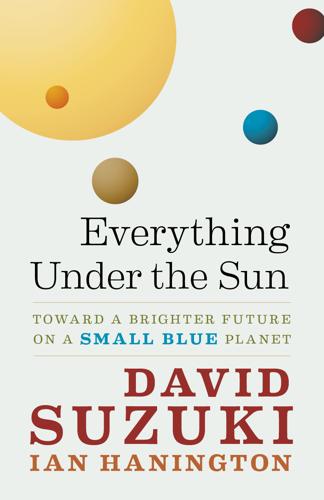
Everything Under the Sun: Toward a Brighter Future on a Small Blue Planet
by
Ian Hanington
Published 13 May 2012
Environmental Protection Agency over its ruling that carbon dioxide and other global warming gases are a threat to human health and welfare. Many Republicans, some of whom also reject the science of evolution and believe the earth was created six thousand years ago and that humans and dinosaurs walked together, have followed his lead. As for the so-called Climategate brouhaha (where more than one thousand emails between climate scientists at the University of East Anglia were stolen or leaked by hackers), a fifth investigation, this time led by Republicans in response to a request from one of their own, Senator James Inhofe of Oklahoma, again found no “evidence to question the ethics of our scientists or raise doubts about [the National Oceanic and Atmospheric Administration’s] understanding of climate change science.”
…
The world’s largest oil company had admitted that it funded these efforts but promised in 2008 it would stop giving money to groups that lobbied against the need to find clean-energy sources. It’s also an embarrassment for those who, in the face of overwhelming scientific evidence, deny the existence of climate change—or admit that it’s happening but say we can’t and shouldn’t do anything about it. Of course, they will continue to repeat the same discredited points about “Climategate” and medieval warm periods and CO2 as plant food, and they’ll continue to take the advice of climate-change denial PR people like Tom Harris to bombard the media with opinion articles, letters to editors, and comments under online articles. Some people rightly point out that we should look at the science and not at who is paying for the research.
…
Meanwhile, evidence that our fossil-fuel addiction contributes to dangerous climate change and harms the environment in other ways mounts every day, with oil spills, pipeline leaks, and other events. Let’s take a look at some of what we are now learning. Six independent investigations have found that the unimaginatively named Climategate was anything but the scandal or “nail in the coffin of anthropogenic global warming” that deniers claimed. After the illegal theft and release of emails from scientists at the University of East Anglia Climatic Research Unit, some reports found that the scientists could have been more open about sharing data; however, their science was rigorous and sound.
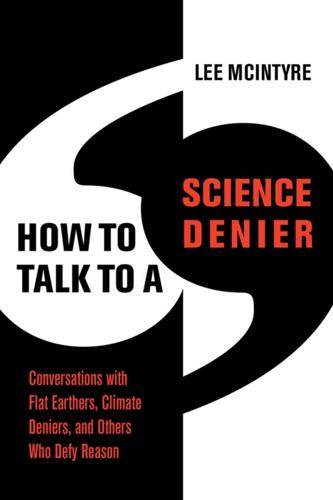
How to Talk to a Science Denier: Conversations With Flat Earthers, Climate Deniers, and Others Who Defy Reason
by
Lee McIntyre
Published 14 Sep 2021
Here’s the Problem,” Washington Post, January 29, 2016, https://www.washingtonpost.com/news/energy-environment/wp/2016/01/29/ted-cruz-keeps-saying-that-satellites-dont-show-warming-heres-the-problem/; Lauren Carroll, “Ted Cruz’s World’s on Fire, but Not for the Last 17 Years,” Politifact, March 20, 2015, https://www.politifact.com/factchecks/2015/mar/20/ted-cruz/ted-cruzs-worlds-fire-not-last-17-years/. 62. Jeremy Schulman, “Every Insane Thing Donald Trump Has Said about Global Warming,” Mother Jones, December 12, 2018, https://www.motherjones.com/environment/2016/12/trump-climate-timeline/. 63. Kate Sheppard, “Climategate: What Really Happened?” Mother Jones, April 21, 2011, https://www.motherjones.com/environment/2011/04/history-of-climategate/. 64. “What If You Held a Conference, and No (Real) Scientists Came?” RealClimate, January 30, 2008, http://www.realclimate.org/index.php/archives/2008/01/what-if-you-held-a-conference-and-no-real-scientists-came/comment-page-8/; Brendan Montague, “I Crashed a Climate Change Denial Conference in Last Vegas,” Vice, July 22, 2014, https://www.vice.com/en/article/7bap4x/las-vegas-climate-change-denial-brendan-montague-101; https://climateconference.heartland.org/.
…
Notably, even when this was debunked, they continued to make the claim.61 Conspiracy Theories Of course. President Trump has made numerous claims over the years about how climate change is a hoax perpetrated by the Chinese to hurt American manufacturing, that the scientists are politically biased, etc.62 During the 2009 Climategate debacle, deniers seized on some inappropriate emails sent by scientists at the University of East Anglia, and tried to use them to show that there was a worldwide conspiracy of climate scientists.63 Reliance on Fake Experts Here the issue is a tad more subtle. Some of the work cited by climate skeptics has been done by actual scientists (some with credentials in climate science), but their work has been cherry-picked with great preference for preexisting views that are hostile to climate change.
…
Kate Yoder, “Russian Trolls Shared Some Truly Terrible Climate Change Memes,” Grist, May 1, 2018, https://grist.org/article/russian-trolls-shared-some-truly-terrible-climate-change-memes/; Craig Timberg and Tony Romm, “These Provocative Images Show Russian Trolls Sought to Inflame Debate over Climate Change, Fracking and Dakota Pipeline,” Washington Post, March 1, 2018, https://www.washingtonpost.com/news/the-switch/wp/2018/03/01/congress-russians-trolls-sought-to-inflame-u-s-debate-on-climate-change-fracking-and-dakota-pipeline/; Rebecca Leber and A.J. Vicens, “7 Years Before Russia Hacked the Election, Someone Did the Same Thing to Climate Scientists,” Mother Jones, January/February 2018, https://www.motherjones.com/politics/2017/12/climategate-wikileaks-russia-trump-hacking/. 26. Carolyn Y. Johnson, “Russian Trolls and Twitter Bots Exploit Vaccine Controversy,” Washington Post, August 23, 2018, https://www.washingtonpost.com/science/2018/08/23/russian-trolls-twitter-bots-exploit-vaccine-controversy/; Jessica Glenza, “Russian Trolls ‘Spreading Discord’ over Vaccine Safety Online,” Guardian, August 23, 2018, https://www.theguardian.com/society/2018/aug/23/russian-trolls-spread-vaccine-misinformation-on-twitter. 27.
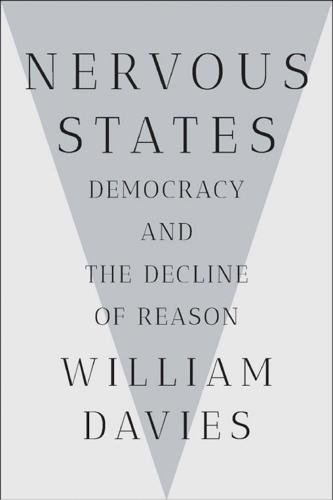
Nervous States: Democracy and the Decline of Reason
by
William Davies
Published 26 Feb 2019
Meanwhile, more and more information is revealed about public figures, to the point where it becomes virtually impossible to judge them on the basis of their public words alone. Social media archives and email leaks allow the world to view and criticize their behavior, whether or not it is obviously relevant to their public status and credibility. The email hacking scandal known as “Climategate” saw thousands of emails being leaked from the University of East Anglia Climate Research Unit in 2009–11, aimed at undermining both the authority of climate science but also the neutrality and objectivity of climate scientists themselves. This form of trolling follows the logic of encryption and interception, and harnesses them as weapons of cultural war.
…
A/B testing, 199 Acorn, 152 ad hominem attacks, 27, 124, 195 addiction, 83, 105, 116–17, 172–3, 186–7, 225 advertising, 14, 139–41, 143, 148, 178, 190, 192, 199, 219, 220 aerial bombing, 19, 125, 135, 138, 143, 180 Affectiva, 188 affective computing, 12, 141, 188 Agent Orange, 205 Alabama, United States, 154 alcoholism, 100, 115, 117 algorithms, 150, 169, 185, 188–9 Alsace, 90 alt-right, 15, 22, 50, 131, 174, 196, 209 alternative facts, 3 Amazon, 150, 173, 175, 185, 186, 187, 192, 199, 201 American Association for the Advancement of Science, 24 American Civil War (1861–5), 105, 142 American Pain Relief Society, 107 anaesthetics, 104, 142 Anderson, Benedict, 87 Anthropocene, 206, 213, 215, 216 antibiotics, 205 antitrust laws, 220 Appalachia, 90, 100 Apple, 156, 185, 187 Arab Spring (2011), 123 Arendt, Hannah, xiv, 19, 23, 26, 53, 219 Aristotle, 35, 95–6 arrogance, 39, 47, 50 artificial intelligence (AI), 12–13, 140–41, 183, 216–17 artificial video footage, 15 Ashby, Ross, 181 asymmetrical war, 146 atheism, 34, 35, 209 attention economy, 21 austerity, 100–101, 225 Australia, 103 Australian, 192 Austria, 14, 60, 128, 153–75 Austria-Hungary (1867–1918), 153–4, 159 authoritarian values, 92–4, 101–2, 108, 114, 118–19, 211–12 autocracy, 16, 20, 202 Babis, Andrej, 26 Bacon, Francis, 34, 35, 95, 97 Bank of England, 32, 33, 55, 64 Banks, Aaron, 26 Bannon, Steve, 21, 22, 60–61 Bayh–Dole Act (1980), 152 Beck Depression Inventory, 107 Berlusconi, Silvio, 202 Bernays, Edward, 14–15, 16, 143 “Beyond the Pleasure Principle” (Freud), 110 Bezos, Jeff, 150, 173 Big Data, 185–93, 198–201 Big Government, 65 Big Science, 180 Bilbao, Spain, 84 bills of mortality, 68–71, 75, 79–80, 81, 127 Birmingham, West Midlands, 85 Black Lives Matter, 10, 225 Blackpool, Lancashire, 100 blind peer reviewing, 48, 139, 195 Blitz (1940–41), 119, 143, 180 blue sky research, 133 body politic, 92–119 Bologna, Italy, 96 bookkeeping, 47, 49, 54 Booth, Charles, 74 Boston, Massachusetts, 48 Boyle, Robert, 48–50, 51–2 BP oil spill (2010), 89 brainwashing, 178 Breitbart, 22, 174 Brexit (2016–), xiv, 23 and education, 85 and elites, 33, 50, 61 and inequality, 61, 77 and NHS, 93 and opinion polling, 80–81 as self-harm, 44, 146 and statistics, 61 Unite for Europe march, 23 Vote Leave, 50, 93 British Futures, 65 Brooks, Rosa, 216 bullying, 113 Bureau of Labor, 74 Bush, George Herbert Walker, 77 Bush, George Walker, 77, 136 cadaverous research, 96, 98 call-out culture, 195 Calvinism, 35 Cambridge, Cambridgeshire, 85 University, 84, 151 Cambridge Analytica, 175, 191, 196, 199 Cameron, David, 33, 73, 100 cancer, 105 Capital in the Twenty-First Century (Piketty), 74 capital punishment, 92, 118 car accidents, 112–13 cargo-cult science, 50 Carney, Mark, 33 cartography, 59 Case, Anne, 99–100, 102, 115 Catholicism, 34 Cato Institute, 158 Cavendish, William, 3rd Earl of Devonshire, 34 Central Intelligence Agency (CIA), 3, 136, 151, 199 Center for Policy Studies, 164 chappe system, 129, 182 Charles II, King of England, Scotland, and Ireland, 34, 68, 73 Charlottesville attack (2017), 20 Chelsea, London, 100 Chevillet, Mark, 176 Chicago School, 160 China, 13, 15, 103, 145, 207 chloroform, 104 cholera, 130 Chongqing, China, 13 chronic pain, 102, 105, 106, 109 see also pain Churchill, Winston, 138 citizen science, 215, 216 civil rights movements, 21, 194 civilians, 43, 143, 204 von Clausewitz, Carl, 128–35, 141–7, 152 and defeat, 144–6 and emotion, 141–6, 197 and great leaders, 146–7, 156, 180–81 and intelligence, 134–5, 180–81 and Napoleon, 128–30, 133, 146–7 and soldiers, number of, 133–4 war, definition of, 130, 141, 193 climate change, 26, 50, 165, 205–7, 213–16 Climate Mobilization, 213–14 climate-gate (2009), 195 Clinton, Hillary, 27, 63, 77, 99, 197, 214 Clinton, William “Bill,” 77 coal mining, 90 cognitive behavioral therapy, 107 Cold War, 132, 133, 135–6, 137, 180, 182–4, 185, 223 and disruption, 204–5 intelligence agencies, 183 McCarthyism (1947–56), 137 nuclear weapons, 135, 180 scenting, 135–6 Semi-Automatic Ground Environment (SAGE), 180, 182, 200 space race, 137 and telepathy, 177–8 colonialism, 59–61, 224 commercial intelligence, 152 conscription, 127 Conservative Party, 80, 154, 160, 163, 166 Constitution of Liberty, The (Hayek), 160 consumer culture, 90, 104, 139 contraceptive pill, 94 Conway, Kellyanne, 3, 5 coordination, 148 Corbyn, Jeremy, 5, 6, 65, 80, 81, 197, 221 corporal punishment, 92 creative class, 84, 151 Cromwell, Oliver, 57, 59, 73 crop failures, 56 Crutzen, Paul, 206 culture war, xvii Cummings, Dominic, 50 currency, 166, 168 cutting, 115 cyber warfare, xii, 42, 43, 123, 126, 200, 212 Czech Republic, 103 Daily Mail, ix Damasio, Antonio, 208 Darwin, Charles, 8, 140, 142, 157, 171, 174, 179 Dash, 187 data, 49, 55, 57–8, 135, 151, 185–93, 198–201 Dawkins, Richard, 207, 209 death, 37, 44–5, 66–7, 91–101 and authoritarian values, 92–4, 101–2, 211, 224 bills of mortality, 68–71, 75, 79–80, 81, 89, 127 and Descartes, 37, 91 and Hobbes, 44–5, 67, 91, 98–9, 110, 151, 184 immortality, 149, 183–4, 224, 226 life expectancy, 62, 68–71, 72, 92, 100–101, 115, 224 suicide, 100, 101, 115 and Thiel, 149, 151 death penalty, 92, 118 Deaton, Angus, 99–100, 102, 115 DeepMind, 218 Defense Advanced Research Projects Agency (DARPA), 176, 178 Delingpole, James, 22 demagogues, 11, 145, 146, 207 Democratic Party, 77, 79, 85 Denmark, 34, 151 depression, 103, 107 derivatives, 168, 172 Descartes, René, xiii, 36–9, 57, 147 and body, 36–8, 91, 96–7, 98, 104 and doubt, 36–8, 39, 46, 52 and dualism, 36–8, 39, 86, 94, 131, 139–40, 179, 186, 223 and nature, 37, 38, 86, 203 and pain, 104, 105 Descartes’ Error (Damasio), 208 Devonshire, Earl of, see Cavendish, William digital divide, 184 direct democracy, 202 disempowerment, 20, 22, 106, 113–19 disruption, 18, 20, 146, 147, 151, 171, 175 dog whistle politics, 200 Donors Trust, 165 Dorling, Danny, 100 Downs Survey (1655), 57, 59, 73 doxing, 195 drone warfare, 43, 194 drug abuse, 43, 100, 105, 115–16, 131, 172–3 Du Bois, William Edward Burghardt, 74 Dugan, Regina, 176–7 Dunkirk evacuation (1940), 119 e-democracy, 184 Echo, 187 ecocide, 205 Economic Calculation in the Socialist Commonwealth (Mises), 154, 166 economics, 59, 153–75 Economist, 85, 99 education, 85, 90–91 electroencephalography (EEG), 140 Elizabethan era (1558–1603), 51 embodied knowledge, 162 emotion and advertising, 14 artificial intelligence, 12–13, 140–41 and crowd-based politics, 4, 5, 8, 9, 10, 15, 16, 21, 23–7 Darwin’s analysis, 8, 140 Descartes on, 94, 131 and experts, 53, 60, 64, 66, 90 fear, 11–12, 16–22, 34, 40–45, 52, 60, 142 Hobbes on, 39, 41 James’ analysis, 140 and markets, 168, 175 moral, 21 and nationalism, 71, 210 pain, 102–19 sentiment analysis, xiii, 12–13, 140, 188 and war, 124–6, 142 empathy, 5, 12, 65, 102, 104, 109, 112, 118, 177, 179, 197 engagement, 7, 219 England Bank of England founded (1694), 55 bills of mortality, 68–71, 75, 79–80, 81, 89, 127 civil servants, 54 Civil War (1642–51), 33–4, 45, 53 Elizabethan era (1558–1603), 51 Great Fire of London (1666), 67 hospitals, 57 Irish War (1649–53), 59 national debt, 55 Parliament, 54, 55 plagues, 67–71, 75, 79–80, 81, 89, 127 Royal Society, 48–52, 56, 68, 86, 208, 218 tax collection, 54 Treasury, 54 see also United Kingdom English Defense League, ix entrepreneurship, 149, 156, 162 environment, 21, 26, 50, 61, 86, 165, 204–7, 213–16 climate change, 26, 50, 165, 205–7, 213–16 flying insects, decline of, 205, 215 Environmental Protection Agency, 23 ether, 104 European Commission, 60 European Space Agency, 175 European Union (EU), xiv, 22, 60 Brexit (2016–), see under Brexit and elites, 60, 145, 202 euro, 60, 78 Greek bailout (2015), 31 immigration, 60 and nationalism, 60, 145, 146 quantitative easing, 31 refugee crisis (2015–), 60, 225 Unite for Europe march (2017), 23 Exeter, Devon, 85 experts and crowd-based politics, 5, 6, 23, 25, 27 Hayek on, 162–4, 170 and representative democracy, 7 and statistics, 62–91 and technocracy, 53–61, 78, 87, 89, 90 trust in, 25–33, 63–4, 66, 74–5, 77–9, 170, 202 violence of, 59–61 Expression of the Emotions in Man and Animal, The (Darwin), 8, 140 Exxon, 165 Facebook, xvi, 15, 201 advertising, 190, 192, 199, 219, 220 data mining, 49, 185, 189, 190, 191, 192, 198, 219 and dog whistle politics, 200 and emotional artificial intelligence, 140 as engagement machine, 219 and fake news, 199 and haptics, 176, 182 and oligarchy, 174 and psychological profiling, 124 and Russia, 199 and sentiment analysis, 188 and telepathy, 176–8, 181, 185, 186 and Thiel, 149, 150 and unity, 197–8 weaponization of, 18 facial recognition, 13, 188–9 failed states, 42 fake news, 8, 15, 199 Farage, Nigel, 65 fascism, 154, 203, 209 fear, 11–12, 16–22, 34, 40–45, 52, 60, 142 Federal Bureau of Investigation (FBI), 137 Federal Reserve, 33 feeling, definition of, xii feminism, 66, 194 Fifth Amendment, 44 fight or flight, 111, 114 Financial Times, 15 first past the post, 13 First World War, see World War I Fitbit, 187 fixed currency exchange rates, 166 Florida, Richard, 84 flu, 67, 191 flying insects, 205, 215 France censuses, 66, 73 conscription introduced (1793), 127 Front National, 27, 61, 79, 87, 92 Hobbes in (1640–51), 33–4, 41–2 Le Bon’s crowd psychology, 8–12, 13, 15, 16, 20, 24, 25, 38 life expectancy, 101 Napoleonic Wars (1803–15), see Napoleonic Wars Paris climate accord (2015), 205, 207 Paris Commune (1871), 8 Prussian War (1870–71), 8, 142 Revolution (1789–99), xv, 71, 126–9, 141, 142, 144, 204 statistics agency established (1800), 72 unemployment, 83 Franklin, Benjamin, 66 free markets, 26, 79, 84, 88, 154–75 free speech, 22, 113, 194, 208, 209, 224 free will, 16 Freud, Sigmund, 9, 14, 44, 107, 109–10, 111, 112, 114, 139 Friedman, Milton, 160, 163, 166 Front National, 27, 61, 79, 87, 92, 101–2 full spectrum warfare, 43 functional magnetic resonance imaging (fMRI), 140 futurists, 168 Galen, 95–6 Galilei, Galileo, 35 gambling, 116–17 game theory, 132 gaming, 193–4 Gandhi, Mohandas, 224 gate control theory, 106 Gates, Sylvester James “Jim,” 24 Gavotti, Giulio, 143 geek humor, 193 Gehry, Frank, 84 Geller, Uri, 178 geometry, 35, 49, 57, 59, 203 Gerasimov, Valery, 123, 125, 126, 130 Germany, 34, 72, 137, 205, 215 gig economy, 173 global financial crisis (2007–9), 5, 29–32, 53, 218 austerity, 100–101 bailouts, 29–32, 40, 42 and gross domestic product (GDP), 76 as “heart attack,” 57 and Obama administration, 158 and quantitative easing, 31–2, 222 and securitization of loans, 218–19 and statistics, 53, 65 and suicide, 101 and unemployment, 82 globalization, 21, 78, 84, 145, 146 Gonzales, Alberto, 136 Google, xvi, 174, 182, 185, 186, 191, 192 DeepMind, 218 Maps, 182 Transparency Project, 198 Government Accountability Office, 29 Graunt, John, 67–9, 73, 75, 79–80, 81, 85, 89, 127, 167 Great Fire of London (1666), 67 great leaders, 146–8 Great Recession (2007–13), 76, 82, 101 Greece, 5, 31, 101 Greenpeace, 10 Grenfell Tower fire (2017), 10 Grillo, Beppe, 26 gross domestic product (GDP), 62, 65, 71, 75–9, 82, 87, 138 guerrillas, 128, 146, 194, 196 Haldane, Andrew, 32 haptics, 176, 182 Harvey, William, 34, 35, 38, 57, 96, 97 hate speech, 42 von Hayek, Friedrich, 159–73, 219 health, 92–119, 224 hedge funds, 173, 174 hedonism, 70, 224 helicopter money, 222 Heritage Foundation, 164, 214 heroin, 105, 117 heroism and disruption, 18, 146 and genius, 218 and Hobbes, 44, 151 and Napoleonic Wars, 87, 127, 142 and nationalism, 87, 119, 210 and pain, 212 and protection, 202–3 and technocracy, 101 and technology, 127 Heyer, Heather, 20 Hiroshima atomic bombing (1945), 206 Hobbes, Thomas, xiii, xvi, 33–6, 38–45, 67, 147 on arrogance, 39, 47, 50, 125 and body, 96, 98–9 and Boyle, 49, 50, 51 on civil society, 42, 119 and death, 44–5, 67, 69–70, 91, 98–9, 110, 151, 184 on equality, 89 on fear, 40–45, 52, 67, 125 France, exile in (1640–51), 33–4, 41 on geometry, 35, 38, 49, 56, 57 and heroism, 44, 151 on language, 38–9 natural philosophy, 35–6 and nature, 38, 50 and Petty, 56, 57, 58 on promises, 39–42, 45, 148, 217–18 and Royal Society, 49, 50, 51 on senses, 38, 49, 147 and sovereign/state, 40–45, 46, 52, 53, 54, 60, 67, 73, 126, 166, 217, 220 on “state of nature,” 40, 133, 206, 217 war and peace, separation of, 40–45, 54, 60, 73, 125–6, 131, 201, 212 Hobsbawm, Eric, 87, 147 Hochschild, Arlie Russell, 221 holistic remedies, 95, 97 Holland, see under Netherlands homeopathy, 95 Homer, xiv Hungary, 20, 60, 87, 146 hysteria, 139 IBM, 179 identity politics, 208, 209 Iglesias Turrión, Pablo, 5 imagined communities, 87 immigration, 60, 63, 65, 79, 87, 145 immortality, 149, 183–4, 224 in-jokes, 193 individual autonomy, 16 Industrial Revolution, 133, 206 inequality, 59, 61, 62, 76, 77, 83, 85, 88–90 inflation, 62, 76, 78, 82 infographics, 75 information theory, 147 information war, 43, 196 insurance, 59 intellectual property, 150 intelligence, 132–9 intensity, 79–83 International Association for the Study of Pain, 106 International Monetary Fund (IMF), 64, 78 Internet, 184–201, 219 IP addresses, 193 Iraq War (2003–11), 74, 132 Ireland, 57, 73 Irish Republican Army (IRA), 43 “Is This How You Feel?
…
Kennedy International Airport, New York, x, xiii, 41 Johns Hopkins University, 176 Jones, Alexander, 131 Kant, Immanuel, 128, 130 Kemelmacher-Shlizerman, Ira, 188 Kennedy Jr., Robert, 23 Kepler, Johannes, 35 Keynes, John Maynard, 165 King Jr., Martin Luther, 21, 224 knowledge economy, 84, 85, 88, 151–2, 217 known knowns, 132, 138 Koch, Charles and David, 154, 164, 174 Korean War (1950–53), 178 Kraepelin, Emil, 139 Kurzweil, Ray, 183–4 Labour Party, 5, 6, 65, 80, 81, 221 Lagarde, Christine, 64 Le Bon, Gustave, 8–12, 13, 15, 16, 20, 24, 25, 38 Le Pen, Marine, 27, 79, 87, 92, 101–2 Leadbeater, Charles, 84 Leeds, West Yorkshire, 85 Leicester, Leicestershire, 85 Leviathan (Hobbes), 34, 39, 45 liberal elites, 20, 58, 88, 89, 161 libertarianism, 15, 151, 154, 158, 164, 173, 196, 209, 226 Liberty Fund, 158 Libya, 143 lie-detection technology, 136 life expectancy, 62, 68–71, 72, 92, 100–101, 115, 224 Lindemann, Frederick Alexander, 1st Viscount Cherwell, 138 Lloyds Bank, 29 London, England bills of mortality, 68–71, 75, 79–80, 81, 89, 127 Blitz (1940–41), 119, 143, 180 EU referendum (2016), 85 Great Fire (1666), 67 Grenfell Tower fire (2017), 10 and gross domestic product (GDP), 77, 78 housing crisis, 84 insurance sector, 59 knowledge economy, 84 life expectancy, 100 newspapers, early, 48 Oxford Circus terror scare (2017), ix–x, xiii, 41 plagues, 67–71, 75, 79–80, 81, 89, 127 Unite for Europe march (2017), 23 London School of Economics (LSE), 160 loss aversion, 145 Louis XIV, King of France, 73, 127 Louisiana, United States, 151, 221 Ludwig von Mises Institute, 154 MacLean, Nancy, 158 Macron, Emmanuel, 33 mainstream media, 197 “Make America Great Again,” 76, 145 Manchester, England, 85 Mann, Geoff, 214 maps, 182 March For Our Lives (2018), 21 March for Science (2017), 23–5, 27, 28, 210, 211 marketing, 14, 139–41, 143, 148, 169 Mars, 175, 226 Marxism, 163 Massachusetts Institute of Technology (MIT), 179 Mayer, Jane, 158 McCarthy, Joseph, 137 McGill Pain Questionnaire, 104 McKibben, William “Bill,” 213 Megaface, 188–9 memes, 15, 194 Menger, Carl, 154 mental illness, 103, 107–17, 139 mercenaries, 126 Mercer, Robert, 174, 175 Mexico, 145 Million-Man March (1995), 4 mind-reading technology, 136 see also telepathy Mirowski, Philip, 158 von Mises, Ludwig, 154–63, 166, 172, 173 Missing Migrants Project, 225 mobilization, 5, 7, 126–31 and Corbyn, 81 and elections, 81, 124 and experts, 27–8 and Internet, 15 and Le Bon’s crowd psychology, 11, 12, 16, 20 and loss, 145 and Napoleonic Wars, xv, 127–30, 141, 144 and Occupy movement, 5 and populism, 16, 22, 60 and violence, opposition to, 21 Moniteur Universel, Le, 142 monopoly on violence, 42 Mont Pelerin Society, 163, 164 moral emotion, 21 morphine, 105 multiculturalism, 84 Murs, Oliver “Olly,” ix Musk, Elon, 175, 176, 178, 183, 226 Nanchang, Jiangxi, 13 Napoleonic Wars (1803–15), 126–30 chappe system, 129, 182 and conscription, 87, 126–7, 129 and disruption, 170–71, 173, 174, 175, 226 and great leader ideal, 146–8 and intelligence, 134 and mobilization, xv, 126–30, 141, 144 and nationalism, 87, 128, 129, 144, 183, 211 and propaganda, 142 Russia, invasion of (1812), 128, 133 Spain, invasion of (1808), 128 National Aeronautics and Space Administration (NASA), 23, 175 National Audit Office (NAO), 29–30 national citizenship, 71 National Defense Research Committee, 180 National Health Service (NHS), 30, 93 National Park Service, 4 National Security Agency (NSA), 152 national sovereignty, 34, 53 nationalism, 87, 141, 210–12 and conservatism, 144 and disempowerment, 118–19 and elites, 22–3, 60–61, 145 ethnic, 15 and health, 92, 211–12, 224 and imagined communities, 87 and inequality, 78 and loss, 145 and markets, 167 and promises, 221 and resentment, 145, 197, 198 and war, 7, 20–21, 118–19, 143–6, 210–11 nativism, 61 natural philosophy, 35–6 nature, 86 see also environment Nazi Germany (1933–45), 137, 138, 154 Netherlands, 48, 56, 129 Neurable, 176 neural networking, 216 Neuralink, 176 neurasthenia, 139 Neurath, Otto, 153–4, 157, 160 neurochemistry, 108, 111, 112 neuroimaging, 176–8, 181 Nevada, United States, 194 new atheism, 209 New Orleans, Louisiana, 151 New Right, 164 New York, United States and climate change, 205 and gross domestic product (GDP), 78 housing crisis, 84 JFK Airport terror scare (2016), x, xiii, 41 knowledge economy, 84 September 11 attacks (2001), 17, 18 New York Times, 3, 27, 85 newspapers, 48, 71 Newton, Isaac, 35 Nietzsche, Friedrich, 217 Nixon, Robert, 206 no-platforming, 22, 208 Nobel Prize, 158–9 non-combatants, 43, 143, 204 non-violence, 224 North Atlantic Treaty Organization (NATO), 123, 145, 214 North Carolina, United States, 84 Northern Ireland, 43, 85 Northern League, 61 Northern Rock, 29 Norwich, Norfolk, 85 nostalgia, xiv, 143, 145, 210, 223 “Not in my name,” 27 nuclear weapons, 132, 135, 137, 180, 183, 192, 196, 204 nudge techniques, 13 Obama, Barack, 3, 24, 76, 77, 79, 158, 172 Obamacare, 172 objectivity, xiv, 13, 75, 136, 223 and crowd-based politics, 5, 7, 24–5 and death, 94 and Descartes, 37 and experts, trust in, 28, 32, 33, 51, 53, 64, 86, 89 and Hayek, 163, 164, 170 and markets, 169, 170 and photography, 8 and Scientific Revolution, 48, 49 and statistics, 72, 74, 75, 82, 88 and telepathic communication, 179 and war, 58, 125, 134, 135, 136, 146 Occupy movement, 5, 10, 24, 61 Oedipus complex, 109 Office for National Statistics, 63, 133 Ohio, United States, 116 oil crisis (1973), 166 “On Computable Numbers” (Turing), 181 On War (Clausewitz), 130 Open Society and Its Enemies, The (Popper), 171 opiates, 105, 116, 172–3 opinion polling, 65, 80–81, 191 Orbán, Viktor, 87, 146 Organisation for Economic Co-operation and Development (OECD), 72 Oxford, Oxfordshire, 85 Oxford Circus terror scare (2017), ix–x, xiii, 41 Oxford University, 56, 151 OxyContin, 105, 116 pacifism, 8, 20, 44, 151 pain, 102–19, 172–3, 224 see also chronic pain painkillers, 104, 105, 116, 172–3 Palantir, 151, 152, 175, 190 parabiosis, 149 Paris climate accord (2015), 205, 207 Paris Commune (1871), 8 Parkland attack (2018), 21 Patriot Act (2001), 137 Paul, Ronald, 154 PayPal, 149 Peace of Westphalia (1648), 34, 53 peer reviewing, 48, 139, 195, 208 penicillin, 94 Pentagon, 130, 132, 135, 136, 214, 216 pesticides, 205 Petty, William, 55–9, 67, 73, 85, 167 pharmacology, 142 Pielke Jr., Roger, 24, 25 Piketty, Thomas, 74 Pinker, Stephen, 207 plagues, 56, 67–71, 75, 79–80, 81, 89, 95 pleasure principle, 70, 109, 110, 224 pneumonia, 37, 67 Podemos, 5, 202 Poland, 20, 34, 60 Polanyi, Michael, 163 political anatomy, 57 Political Arithmetick (Petty), 58, 59 political correctness, 20, 27, 145 Popper, Karl, 163, 171 populism xvii, 211–12, 214, 220, 225–6 and central banks, 33 and crowd-based politics, 12 and democracy, 202 and elites/experts, 26, 33, 50, 152, 197, 210, 215 and empathy, 118 and health, 99, 101–2, 224–5 and immediate action, 216 in Kansas (1880s), 220 and markets, 167 and private companies, 174 and promises, 221 and resentment, 145 and statistics, 90 and unemployment, 88 and war, 148, 212 Porter, Michael, 84 post-traumatic stress disorder (PTSD), 111–14, 117, 209 post-truth, 167, 224 Potsdam Conference (1945), 138 power vs. violence, 19, 219 predictive policing, 151 presidential election, US (2016), xiv and climate change, 214 and data, 190 and education, 85 and free trade, 79 and health, 92, 99 and immigration, 79, 145 and inequality, 76–7 and Internet, 190, 197, 199 “Make America Great Again,” 76, 145 and opinion polling, 65, 80 and promises, 221 and relative deprivation, 88 and Russia, 199 and statistics, 63 and Yellen, 33 prisoners of war, 43 promises, 25, 31, 39–42, 45–7, 51, 52, 217–18, 221–2 Propaganda (Bernays), 14–15 propaganda, 8, 14–16, 83, 124–5, 141, 142, 143 property rights, 158, 167 Protestantism, 34, 35, 45, 215 Prussia (1525–1947), 8, 127–30, 133–4, 135, 142 psychiatry, 107, 139 psychoanalysis, 107, 139 Psychology of Crowds, The (Le Bon), 9–12, 13, 15, 16, 20, 24, 25 psychosomatic, 103 public-spending cuts, 100–101 punishment, 90, 92–3, 94, 95, 108 Purdue, 105 Putin, Vladimir, 145, 183 al-Qaeda, 136 quality of life, 74, 104 quantitative easing, 31–2, 222 quants, 190 radical statistics, 74 RAND Corporation, 183 RBS, 29 Reagan, Ronald, 15, 77, 154, 160, 163, 166 real-time knowledge, xvi, 112, 131, 134, 153, 154, 165–70 Reason Foundation, 158 Red Vienna, 154, 155 Rees-Mogg, Jacob, 33, 61 refugee crisis (2015–), 60, 225 relative deprivation, 88 representative democracy, 7, 12, 14–15, 25–8, 61, 202 Republican Party, 77, 79, 85, 154, 160, 163, 166, 172 research and development (R&D), 133 Research Triangle, North Carolina, 84 resentment, 5, 226 of elites/experts, 32, 52, 61, 86, 88–9, 161, 186, 201 and nationalism/populism, 5, 144–6, 148, 197, 198 and pain, 94 Ridley, Matt, 209 right to remain silent, 44 Road to Serfdom, The (Hayek), 160, 166 Robinson, Tommy, ix Roosevelt, Franklin Delano, 52 Royal Exchange, 67 Royal Society, 48–52, 56, 68, 86, 133, 137, 186, 208, 218 Rumsfeld, Donald, 132 Russian Empire (1721–1917), 128, 133 Russian Federation (1991–) and artificial intelligence, 183 Gerasimov Doctrine, 43, 123, 125, 126 and information war, 196 life expectancy, 100, 115 and national humiliation, 145 Skripal poisoning (2018), 43 and social media, 15, 18, 199 troll farms, 199 Russian Revolution (1917), 155 Russian SFSR (1917–91), 132, 133, 135–8, 155, 177, 180, 182–3 safe spaces, 22, 208 Sands, Robert “Bobby,” 43 Saxony, 90 scarlet fever, 67 Scarry, Elaine, 102–3 scenting, 135, 180 Schneier, Bruce, 185 Schumpeter, Joseph, 156–7, 162 Scientific Revolution, 48–52, 62, 66, 95, 204, 207, 218 scientist, coining of term, 133 SCL, 175 Scotland, 64, 85, 172 search engines, xvi Second World War, see World War II securitization of loans, 218 seismology, 135 self-employment, 82 self-esteem, 88–90, 175, 212 self-harm, 44, 114–15, 117, 146, 225 self-help, 107 self-interest, 26, 41, 44, 61, 114, 141, 146 Semi-Automatic Ground Environment (SAGE), 180, 182, 200 sentiment analysis, xiii, 12–13, 140, 188 September 11 attacks (2001), 17, 18 shell shock, 109–10 Shrecker, Ted, 226 Silicon Fen, Cambridgeshire, 84 Silicon Valley, California, xvi, 219 and data, 55, 151, 185–93, 199–201 and disruption, 149–51, 175, 226 and entrepreneurship, 149–51 and fascism, 203 and immortality, 149, 183–4, 224, 226 and monopolies, 174, 220 and singularity, 183–4 and telepathy, 176–8, 181, 185, 186, 221 and weaponization, 18, 219 singularity, 184 Siri, 187 Skripal poisoning (2018), 43 slavery, 59, 224 smallpox, 67 smart cities, 190, 199 smartphone addiction, 112, 186–7 snowflakes, 22, 113 social indicators, 74 social justice warriors (SJWs), 131 social media and crowd psychology, 6 emotional artificial intelligence, 12–13, 140–41 and engagement, 7 filter bubbles, 66 and propaganda, 15, 18, 81, 124 and PTSD, 113 and sentiment analysis, 12 trolls, 18, 20–22, 27, 40, 123, 146, 148, 194–8, 199, 209 weaponization of, 18, 19, 22, 194–5 socialism, 8, 20, 154–6, 158, 160 calculation debate, 154–6, 158, 160 Socialism (Mises), 160 Society for Freedom in Science, 163 South Africa, 103 sovereignty, 34, 53 Soviet Russia (1917–91), 132, 133, 135–8, 177, 180, 182–3 Spain, 5, 34, 84, 128, 202 speed of knowledge, xvi, 112, 124, 131, 134, 136, 153, 154, 165–70 Spicer, Sean, 3, 5 spy planes, 136, 152 Stalin, Joseph, 138 Stanford University, 179 statactivism, 74 statistics, 62–91, 161, 186 status, 88–90 Stoermer, Eugene, 206 strong man leaders, 16 suicide, 100, 101, 115 suicide bombing, 44, 146 superbugs, 205 surveillance, 185–93, 219 Sweden, 34 Switzerland, 164 Sydenham, Thomas, 96 Syriza, 5 tacit knowledge, 162 talking cure, 107 taxation, 158 Tea Party, 32, 50, 61, 221 technocracy, 53–8, 59, 60, 61, 78, 87, 89, 90, 211 teenage girls, 113, 114 telepathy, 39, 176–9, 181, 185, 186 terrorism, 17–18, 151, 185 Charlottesville attack (2017), 20 emergency powers, 42 JFK Airport terror scare (2016), x, xiii, 41 Oxford Circus terror scare (2017), ix–x, xiii, 41 September 11 attacks (2001), 17, 18 suicide bombing, 44, 146 vehicle-ramming attacks, 17 war on terror, 131, 136, 196 Thames Valley, England, 85 Thatcher, Margaret, 154, 160, 163, 166 Thiel, Peter, 26, 149–51, 153, 156, 174, 190 Thirty Years War (1618–48), 34, 45, 53, 126 Tokyo, Japan, x torture, 92–3 total wars, 129, 142–3 Treaty of Westphalia (1648), 34, 53 trends, xvi, 168 trigger warnings, 22, 113 trolls, 18, 20–22, 27, 40, 123, 146, 148, 194–8, 199, 209 Trump, Donald, xiv and Bannon, 21, 60–61 and climate change, 207 and education, 85 election campaign (2016), see under presidential election, US and free trade, 79 and health, 92, 99 and immigration, 145 inauguration (2017), 3–5, 6, 9, 10 and inequality, 76–7 “Make America Great Again,” 76, 145 and March for Science (2017), 23, 24, 210 and media, 27 and opinion polling, 65, 80 and Paris climate accord, 207 and promises, 221 and relative deprivation, 88 and statistics, 63 and Yellen, 33 Tsipras, Alexis, 5 Turing, Alan, 181, 183 Twitter and Corbyn’s rallies, 6 and JFK Airport terror scare (2016), x and Oxford Circus terror scare (2017), ix–x and Russia, 18 and sentiment analysis, 188 and trends, xvi and trolls, 194, 195 Uber, 49, 185, 186, 187, 188, 191, 192 UK Independence Party, 65, 92, 202 underemployment, 82 unemployment, 61, 62, 72, 78, 81–3, 87, 88, 203 United Kingdom austerity, 100 Bank of England, 32, 33, 64 Blitz (1940–41), 119, 143, 180 Brexit (2016–), see under Brexit Cameron government (2010–16), 33, 73, 100 Center for Policy Studies, 164 Civil Service, 33 climate-gate (2009), 195 Corbyn’s rallies, 5, 6 Dunkirk evacuation (1940), 119 education, 85 financial crisis (2007–9), 29–32, 100 first past the post, 13 general election (2015), 80, 81 general election (2017), 6, 65, 80, 81, 221 Grenfell Tower fire (2017), 10 gross domestic product (GDP), 77, 79 immigration, 63, 65 Irish hunger strike (1981), 43 life expectancy, 100 National Audit Office (NAO), 29 National Health Service (NHS), 30, 93 Office for National Statistics, 63, 133 and opiates, 105 Oxford Circus terror scare (2017), ix–x, xiii, 41 and pain, 102, 105 Palantir, 151 Potsdam Conference (1945), 138 quantitative easing, 31–2 Royal Society, 138 Scottish independence referendum (2014), 64 Skripal poisoning (2018), 43 Society for Freedom in Science, 163 Thatcher government (1979–90), 154, 160, 163, 166 and torture, 92 Treasury, 61, 64 unemployment, 83 Unite for Europe march (2017), 23 World War II (1939–45), 114, 119, 138, 143, 180 see also England United Nations, 72, 222 United States Bayh–Dole Act (1980), 152 Black Lives Matter, 10, 225 BP oil spill (2010), 89 Bush Jr. administration (2001–9), 77, 136 Bush Sr administration (1989–93), 77 Bureau of Labor, 74 Central Intelligence Agency (CIA), 3, 136, 151, 199 Charlottesville attack (2017), 20 Civil War (1861–5), 105, 142 and climate change, 207, 214 Clinton administration (1993–2001), 77 Cold War, see Cold War Defense Advanced Research Projects Agency (DARPA), 176, 178 Defense Intelligence Agency, 177 drug abuse, 43, 100, 105, 115–16, 131, 172–3 education, 85 Federal Bureau of Investigation (FBI), 137 Federal Reserve, 33 Fifth Amendment (1789), 44 financial crisis (2007–9), 31–2, 82, 158 first past the post, 13 Government Accountability Office, 29 gross domestic product (GDP), 75–7, 82 health, 92, 99–100, 101, 103, 105, 107, 115–16, 158, 172–3 Heritage Foundation, 164, 214 Iraq War (2003–11), 74, 132 JFK Airport terror scare (2016), x, xiii, 41 Kansas populists (1880s), 220 libertarianism, 15, 151, 154, 158, 164, 173 life expectancy, 100, 101 March For Our Lives (2018), 21 March for Science (2017), 23–5, 27, 28, 210 McCarthyism (1947–56), 137 Million-Man March (1995), 4 National Aeronautics and Space Administration (NASA), 23, 175 National Defense Research Committee, 180 National Park Service, 4 National Security Agency (NSA), 152 Obama administration (2009–17), 3, 24, 76, 77, 79, 158 Occupy Wall Street (2011), 5, 10, 61 and opiates, 105, 172–3 and pain, 103, 105, 107, 172–3 Palantir, 151, 152, 175, 190 Paris climate accord (2015), 205, 207 Parkland attack (2018), 21 Patriot Act (2001), 137 Pentagon, 130, 132, 135, 136, 214, 216 presidential election (2016), see under presidential election, US psychiatry, 107, 111 quantitative easing, 31–2 Reagan administration (1981–9), 15, 77, 154, 160, 163, 166 Rumsfeld’s “unknown unknowns” speech (2002), 132 Semi-Automatic Ground Environment (SAGE), 180, 182, 200 September 11 attacks (2001), 17, 18 Tea Party, 32, 50, 61, 221 and torture, 93 Trump administration (2017–), see under Trump, Donald unemployment, 83 Vietnam War (1955–75), 111, 130, 136, 138, 143, 205 World War I (1914–18), 137 World War II (1939–45), 137, 180 universal basic income, 221 universities, 151–2, 164, 169–70 University of Cambridge, 84, 151 University of Chicago, 160 University of East Anglia, 195 University of Oxford, 56, 151 University of Vienna, 160 University of Washington, 188 unknown knowns, 132, 133, 136, 138, 141, 192, 212 unknown unknowns, 132, 133, 138 “Use of Knowledge in Society, The” (Hayek), 161 V2 flying bomb, 137 vaccines, 23, 95 de Vauban, Sébastien Le Prestre, Marquis de Vauban, 73 vehicle-ramming attacks, 17 Vesalius, Andreas, 96 Vienna, Austria, 153–5, 159 Vietnam War (1955–75), 111, 130, 136, 138, 143, 205 violence vs. power, 19, 219 viral marketing, 12 virtual reality, 183 virtue signaling, 194 voice recognition, 187 Vote Leave, 50, 93 Wainright, Joel, 214 Wales, 77, 90 Wall Street, New York, 33, 190 War College, Berlin, 128 “War Economy” (Neurath), 153–4 war on drugs, 43, 131 war on terror, 131, 136, 196 Watts, Jay, 115 weaponization, 18–20, 22, 26, 75, 118, 123, 194, 219, 223 weapons of mass destruction, 132 wearable technology, 173 weather control, 204 “What Is An Emotion?”
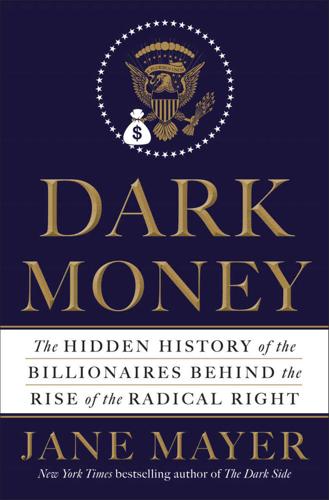
Dark Money: The Hidden History of the Billionaires Behind the Rise of the Radical Right
by
Jane Mayer
Published 19 Jan 2016
But instead of using Monica Lewinsky’s telltale garment to impeach Bill Clinton, they would use the words of the world’s leading climate scientists to impeach the climate change movement. If edited down and taken out of context, their exchanges could be made to appear to suggest a willingness to falsify data in order to buttress the idea that global warming was real. Dubbing the alleged scandal Climategate, they went into overdrive. The web of organizations, funded in part by the Kochs, pounced on the hacked e-mails. Cato scholars were particularly energetic in promoting the story. In the two weeks after the e-mails went public, one Cato scholar alone gave more than twenty media interviews trumpeting the alleged scandal.
…
The only genuinely negative disclosure from the e-mails was that Mann and the other climatologists had agreed among themselves to withhold, rather than share, their research with some of their critics, whom they disparaged. Given the harassment they had been subjected to, their reasoning was understandable, but it violated the customary transparency expected within the scientific community. Other than that, the “Climategate” scandal was, in other words, not one. It took no time, nevertheless, for the hacked e-mails to spur a witch hunt. Within days, Inhofe and other Republicans in Congress who were recipients of Koch campaign donations demanded an investigation into Mann. They sent threatening letters to Penn State, where he was by then a tenured professor.
…
One posted a report: Marc Sheppard, “UN Climate Reports: They Lie,” American Thinker, Oct. 5, 2009. “A miracle has happened”: The Web site on which the contrarian wrote was Climate Audit. “The blue dress moment”: Chris Horner, “The Blue Dress Moment May Have Arrived,” National Review, Nov. 19, 2009. “a crucial tipping point”: Tim Phillips was speaking about the Climategate leaks at the Heritage Foundation on October 26, 2010, as reported by Brad Johnson, Climate Progress, Nov. 27, 2010. Phillips did all he could to exploit the situation, staging an Americans for Prosperity protest in Copenhagen outside the United Nations conference on climate change, where he declared, “We’re a grassroots organization…I think it’s unfortunate when wealthy children of wealthy families…want to send unemployment rates in the United States to twenty percent.”
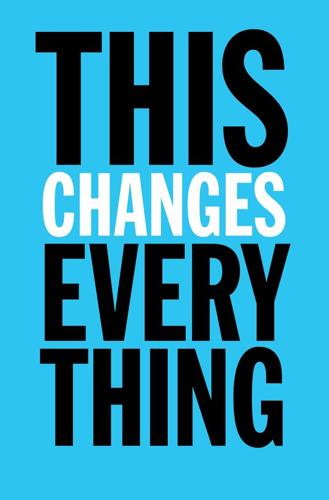
This Changes Everything: Capitalism vs. The Climate
by
Naomi Klein
Published 15 Sep 2014
May 2, 2010; HANSEN: William Lajeunesse, “NASA Scientist Accused of Using Celeb Status Among Environmental Groups to Enrich Himself,” Fox News, June 22, 2011; Christopher Horner, “A Brief Summary of James E. Hansen’s NASA Ethics File,” American Tradition Institute, November 18, 2011; VINDICATED: David Adam, “ ‘Climategate’ Review Clears Scientists of Dishonesty over Data,” Guardian, July 7, 2010; FUELED: James Delingpole, “Climategate: The Final Nail in the Coffin of ‘Anthropogenic Global Warming’?” Daily Telegraph, November 20, 2009; James Delingpole, “Climategate: FOIA—The Man Who Saved the World,” Daily Telegraph, March 13, 2013; BILLBOARD CAMPAIGN: Wendy Koch, “Climate Wars Heat Up with Pulled Unabomber Billboards,” USA Today, May 4, 2012. 27.
…
It is intolerable and deeply offensive. Those preaching this doctrine have to be resisted and indeed denounced.”25 And denounce they do, the more personal, the better—whether it’s former Vice President Al Gore for his mansions, or famed climate scientist James Hansen for his speaking fees. Then there is “Climategate,” a manufactured scandal in which climate scientists’ emails were hacked and their contents distorted by the Heartlanders and their allies, who claimed to find evidence of manipulated data (the scientists were repeatedly vindicated of wrongdoing). In 2012, the Heartland Institute even landed itself in hot water by running a billboard campaign that compared people who believe in climate change (“warmists” in denialist lingo) to murderous cult leader Charles Manson and Unabomber Ted Kaczynski.
…
Mijin, 216 Chad, 270 Chamber of Commerce, U.S., 31, 48 chaos theory, 267 Chappell, Ronnie, 228 charitable foundations, 205–6, 210n extractive industries and, 197–98 Charter of Rights and Freedoms, Canadian, 371 Chávez, Hugo, 179, 182 Chen Jiping, 351 Chesapeake Energy, 312, 356–57 Chevron, 111, 129, 221, 291 Ecuador’s lawsuit against, 309, 378 Gorgon project of, 145–46 green groups funded by, 196, 217 Niger Delta operations of, 308 Pungesti shale gas project of, 298–99, 347, 404 Richmond refinery of, 321, 402 Chicago, University of, 81 Chilcotin River, 345 children, impact of environmental toxins on, 427–29 Childs, Mike, 250 Chile, 9, 454, 464 Chilko River, 345 China, 5, 24, 55, 58, 79, 82, 88n, 451 air pollution in, 17–18, 23, 350, 351 anti-coal movement in, 300, 350–52 carbon emissions from, 409–10, 411, 412 Central Committee, Communist Party, 133 coal exports to, 234 coal use in, 81–82, 83 coolant factories in, 219–20 Copenhagen nonbinding agreement signed by, 12 as creditor, 180 economic growth in, 351–52 as emerging market, 20 environmental contamination in, 23, 83, 154 export-led development in, 81 fast-growing economy of, 40, 153 human rights issues in, 351–52 peasant uprisings in, 350–51 renewable energy programs in, 352 solar energy and, 66, 68, 69–70, 72 wealth in, 114 WTO challenges brought against, 64–65, 68, 70 WTO challenges brought by, 65 WTO membership of, 76 Chisholm, Sallie, 267 Chrétien, Jean, 83 Chrysler, 67, 68 Chukchi Sea, 375–76 CIA, 53 civil disobedience, 139 civil rights movement, 204–5, 450, 453 Clarkson, Thomas, 463 Clatskanie, Oreg., 349 clear-cutting, 296, 304, 310 Climate Action Network, 149 climate change, 73, 110, 165, 176, 177, 230, 249 acceptable risk and, 335 astronaut’s-eye view of, 284–90, 296 centrist organizations and, 198–201 community and, 364–65 computer models of, 270–71 corporate deregulation and, 20 defining of, 210 democracy and, 363–64 developing world on, 75 disasters and, 2–3, 17, 102–3, 154, 406, 465 fracking and, 199 as transformative force, 7, 8, 152–60 Indigenous rights and, 380–84, 385 individual vs. corporate conservation in, 116–18 marine infertility and, 433–35 mitigation of, 134 negotiations on, 11 past and future generations in, 158–59 as planetary emergency, 6, 7, 15, 17, 18, 449–50, 459–60 planetary exodus as solution to, 288–89 and power relation between humans and earth, 175 as result of cumulative emissions, 21, 40, 56, 175, 409–10, 416 roots of, 159–60 sacrifice zones and, 310–11, 315 “safe” limit of, 12–13 tipping points for, 14, 412 2 degrees Celsius boundary in, 87–88, 89, 150, 354, 456 wealth creation and, 46–52 weather patterns and, 269 climate change denial, 2–5, 26, 43, 91, 119, 282–83, 394, 407, 451 economics as factor in, 3, 45–46, 59–60 extractive industries’ funding of, 44–45, 149, 198 increase in, 35 partisan approach to, 35–36 right-wing, 31–63, 154, 178 socioeconomic privilege and, 46–52 technological miracles and, 3 Climate of Corruption (Bell), 33 climate debt, 5, 7, 457 owed to developing world, 5, 7, 40, 387, 408–18 owed to Indigenous peoples, 387, 388–99, 408 seen as politically toxic, 414 Climate Depot, 32, 45 Climategate, 41 climate justice, see climate debt climate manipulation, see geoengineering climate movement: coming of age of, 11–12 deregulated capitalism and, 20 economic justice and, see climate debt growing power and interconnectedness of, 451–52 historical precedents for, 452–57, 459–61 Keystone XL protests and resurgence of, 139–40 lack of sustained and populist, 157 moral imperative in, 336, 386–87, 464 and need for viable economic alternatives to extraction industries, 349, 398, 399, 400–401, 403, 413–18 origins of, 73–75 see also Blockadia climate science, 46, 59, 127, 152, 158 climate treaty negotiations, 11, 77–80, 411 see also emission reduction Clinton, Bill, 83–85, 213, 231–32 Clinton administration, carbon trading proposed by, 218 Clinton Global Initiative annual meeting of 2006, 231 Clodumar, Kinza, 165 Clorox, 356, 357 cloud brightening, 258 cloud seeding, 279 Club of Rome, 185–86 CNN, 45 Coal & Climate Summit, 200 coal, 102, 128, 143, 159, 176, 214, 224 capitalism and, 175, 176 collapsing U.S. market for, 319–20 exporting of, 144n, 301, 320, 322, 349, 352, 362, 374, 376 lignite, 136 as “portable climate,” 174 rail transport of, 234, 362, 389, 397 water power vs., 171–73 coal-fired power plants, 3, 67–68, 81–82, 83, 97, 136–39, 141, 200, 208, 236, 247–48 global campaign against, 319–20, 348–49, 350–52, 365 public utilities and, 100, 196 coal industry, 197, 300–301 opposition to, see anti-coal movements political and economic power of, 316, 321 see also extractive industries coal mining, 145, 398 in Appalachia, 309, 353 in Montana, 320, 342–43, 346, 370, 388–93, 395, 397, 445 mountaintop removal in, 2, 303, 309, 310, 329, 353 water supply contamination from, 332 coal-powered economies, 88 Coates, Ta-Nehisi, 415 Cobenais, Marty, 318–19, 332 Cochabamba, Bolivia, 444n Cohen, Nick, 156 Cold War, 15, 42, 43, 74, 261 collective action, 36 collective sacrifice, 16–17 colleges and universities: divestment movement and, 354–55, 401 renewable energy investment by, 401–2 Colombia, 202, 348, 376–77 colonialism, 154, 370, 414–16 coal and, 173, 176 extractivism and, 169–70 Industrial Revolution and, 171, 175, 457 Scientific Revolution and, 170–71 Colorado, 52, 357n Colorado School of Public Health, 428 Combes, Maxime, 304n, 317–18 Committee for a Constructive Tomorrow, 45 Common Sense (Paine), 314 communism, 20, 39, 42, 44, 177 communities, 106 building of, 92 climate change and, 364–65 renewable energy in, 131–32, 133 see also worldview, communitarian Community Supported Agriculture (CSA) programs, 405 compassion, 62–63, 462 Competitive Enterprise Institute, 32, 45, 411 complexity, 267, 290 composting systems, 108 computer models, of climate change, 270–71 Conant, Lionel, 380 Confederated Tribes of the Umatilla Indian Reservation, 319 Conference Board of Canada, 145 Congo, 220 ConocoPhillips, 226, 227–28, 246 Conservation Fund, 196, 205 Conservation International, 84, 189, 196, 205–6, 209, 211–12 Conservative Party (Canadian), 36 Constitution, Canadian, 371 construction, green, 90 consumer lifestyles, 2, 75, 116–17 consumption, 116 decrease in, 90 excess, 85, 91, 92, 93, 210, 412, 413 green, 211–13, 252 container ships, 76, 79 Conway, Erik, 42 Cook, James, 266 Cook, Katsi, 419 coolants, 219–20 “Cool Dudes” (McCright and Dunlap), 46–47 Coon, David, 374 co-ops: energy, 130, 131–32 worker-run, 122–23, 133 Coos Bay, Oreg., 349 Copenhagen Climate Summit of 2009, 11–14, 34, 150, 262, 451 copper, 91n, 296 coral, coral reefs, 301, 348, 434 Corexit, 432 Cornell University, 143, 217, 317 corn ethanol, 239, 240 corporate donors, 83, 210n corporations, 25 centralization under, 179 crisis exploited by, 8 democracy vs., 7 deregulation of, 19, 20, 72, 142, 154, 210 disaster prevention at, 51–52 environmental groups’ cooperation with, 196, 206–11 freedom from regulation for, 19 free speech for, 151 goals of private, 129–30 ideology of, 75 impact of climate change on, 49 Indigenous peoples vs., 221–23 natural world vs., 60–61 political power of, 199, 124–26, 141–52 right-wing think tanks funded by, 44, 50 taxes avoided by, 115 USCAP and, 226–28 Correa, Rafael, 180–81, 410–11 corruption, of government regulators, 333–34 Cosbey, Aaron, 70 Costa Rica, 348 Coste, Torrance, 363 “Cowboys and Indians alliance,” 302, 318–19, 322–23, 346 crash of 1929, 88 Crawford, Julia Trigg, 361 Crompton, Tom, 60 crops, 9, 34, 57 crowdfunding, 198 Crow Reservation, 389, 397 Crutzen, Paul, 261–62 Cuadrilla, 130 cultural cognition, 36, 44–45, 59, 63, 186 Culture of Narcissism (Lasch), 117 Czechoslovakia, 178 Czech Republic, 42–43, 144, 348 Dai, Aiguo, 272, 275 Daily Mail, 5454 Dallas, Tex., 329 Daly, Herman, 173 dams, 180, 183, 202 Daniel, Patrick, 331–32 dark money, 44 Darling, Jay Norwood “Ding,” 185 Dauphin Island Sea Lab, 433–34 David, Ned, 247 Davis, David Brion, 463 Dayaneni, Gopal, 448 Day One, 391 DDT, 185, 201, 203, 207 de Boer, Yvo, 87 decade zero, 24, 143 Dediu, Doina, 344 deep ecology, 75 deepwater drilling, see offshore drilling, deepwater Defense Department, U.S., 113 deforestation, 202 degrowth strategies: selective, 93–95 for wealthy nations, 88, 89 Delaware River Basin, 346 Delgamuukw v.
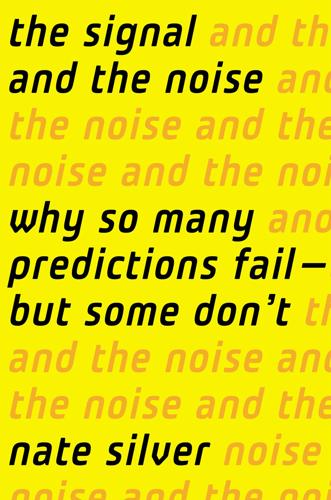
The Signal and the Noise: Why So Many Predictions Fail-But Some Don't
by
Nate Silver
Published 31 Aug 2012
Climate scientists have reacted to this challenge in a variety of ways, some involving themselves more in the political debate and others keeping it at arm’s length. Michael Mann, who is director of the Earth System Science Center at Penn State University, was once at the center of a controversy. “Climategate” concerned the hacking of a server at the Climatic Research Unit (CRU) at the University of East Anglia,103 which produces the temperature record that the UK’s Met Office uses. Skeptics alleged that Mann and other scientists had conspired to manipulate the CRU’s temperature record. The pertinent facts are that the scientists were cleared of wrongdoing by a panel of their peers,104 and that the CRU’s temperature record is quite consistent with the others105—but Mann and other scientists in the hacked e-mails demonstrated a clear concern with the public relations elements of how the science would be perceived.
…
In practice, the model underestimates the error slightly—and therefore somewhat underestimates the chance of a cooling decade—because the exact amount of CO2 is an unknown, as well as because of any specification uncertainty in the model. 103. “Climatic Research Unit E-Mail Controversy;” Wikipedia.org. http://en.wikipedia.org/wiki/Climatic_Research_Unit_email_controversy. 104. Henry Chu, “Panel Clears Researchers in ‘Climategate’ Controversy,” Los Angeles Times, April 15, 2010. http://articles.latimes.com/2010/apr/15/world/la-fg-climate-data15-2010apr15. 105. Including those from satellite records processed by private companies. 106. “Climate of Fear;” editorial in Nature, 464, 141 (March 11, 2010). http://www.nature.com/nature/journal/v464/n7286/full/464141a.html. 107.
…
S., 401 caloric consumption, 372, 373 Cal State Fullerton, 161 Calvinism, 112 Campbell, Murray, 268, 284–85, 286, 288 Canada, 52, 210, 379 capitalism, 13 Protestant work ethic and, 5 see also free markets CAPTCHA technology, 124 carbon dioxide, 374, 375, 379, 392–93, 395, 401–3, 404, 406, 408, 508 carbon emissions, 397–98, 399, 406, 410 Carew, Rod, 84, 85 Carley, Kathleen, 440 Carruthers, David, 319 Carter, Jimmy, 208 cartography, 3, 220 Case, Karl, 30, 32 Case-Shiller index, 30, 30, 464 causation, correlations vs., 185–88, 254–55 Center for Strategic and International Studies (CSIS), 425–27 Centers for Disease Control (CDC), 205, 206–7, 211 Central Park, 391, 391 CFOs, 359 Chadwick, Henry, 95 chaos, cone of, 139 chaos theory, 118–22, 124, 132, 162, 172, 195, 386 complexity theory vs., 386n Charleston, S.C., 150 chartists, 339–40, 341 Chavez, Eric, 99 chemistry, 114 chess, 10, 16, 262–64, 263, 265–66, 493–94 beginning of game, 268–71 birth of computers for, 265–66 databases for, 270, 277 endgame of, 268, 276–79, 285 forecasting in, 271, 289 heuristics for, 267, 269, 272, 273, 284, 286 midgame of, 268, 271–76, 285 pattern detection in, 281 as theoretically solvable, 267 ChessBase.com, 292–93 Chicago, Ill., 223–24, 225, 228, 230, 432 Chicago, University of, 227 Chicago Cubs, 63, 104 Chicago White Sox, 88 Chile, 144, 438 China, 189, 209, 400 chlorofluorocarbons (CFCs), 375 Christchurch, New Zealand, 174 Christianity, 490 CIA, 51, 467 terrorism prevention by, 273, 424, 426, 433, 443, 510 CIBC Oppenheimer, 352 cigarette smoking, 254–55, 258 Cinema Rex theater, 425n Cirque du Soleil, 318 Citizens Bank Park, 286 Civil Aeronautics Administration, 123n Civil Protection Department, Italy, 143 Clarke, Richard, 425 Clauset, Aaron, 427, 431, 432, 437, 441, 442, 511–12 Clean Air Act, 400 Cleveland, Grover, 334 Cleveland Cavaliers, 239–40, 257 Clift, Eleanor, 48, 49, 50, 56 climate change, use of term, 376, 377n see also global warming Climategate, 408 Climatic Research Unit (CRU), 408 climatology, 131, 132, 370–411 Bayesian reasoning in, 371, 377–78, 403, 406–7, 407, 410–11 models of, 371, 380, 384–85, 401–6, 402 signal vs. noise in, 371–73 uncertainty in, 389–93, 390 Clinton, Bill, 55, 56, 433, 510 Clinton, Hillary, 59, 60, 252 clouds, 385, 386 CNN, 217 coal, 410 cognitive psychology, 227 Cole, USS, 422, 423 comets, 447 commerce, 10 Commerce Department, U.S., 123n commercial lending, 187 commodity prices, 186n, 202 common sense, 451 communism, 51 community cards, 299 compartments, in disease modeling, 220–21, 223 competition, 1, 16, 97, 106, 128, 189 in poker, 313 in the stock market, 313, 352, 364 in weather forecasting, 127–28, 131–37, 132 competitive advantage, 313–14 competitiveness, 97 complexity, of global warming forecasting, 382 complexity theory, 172–73, 368–69, 386 chaos theory vs., 386ncomputer age, 7–8 computers: chess played by, 261–62, 287–88; see also Deep Blue; Deep Thought; Fritz poker played by, 324 predictions and, 292 weather forecasting by, 116–18, 123–25, 289 condom fatigue, 222–23 cone of chaos, 139 Conference Board, 187 confidence, 46 accuracy and, 203 see also overconfidence confidence interval, see margin of error Congress, U.S., 19, 123n, 207, 408 low approval rating of, 188 see also House of Representatives, U.S.; Senate, U.S.
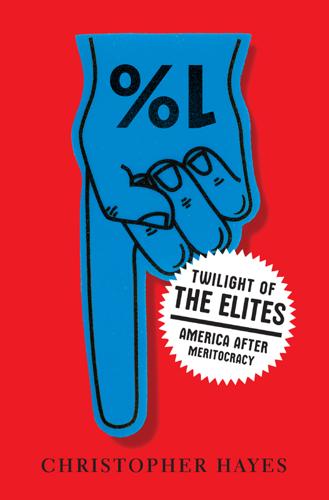
Twilight of the Elites: America After Meritocracy
by
Chris Hayes
Published 11 Jun 2012
Arkin, “A Hidden World, Growing Beyond Control,” Washington Post, July 19, 2010. 34 the market for over-the-counter derivatives grew 74 percent … the market for over-the-counter derivatives had grown 122 percent: See “BIS Releases Latest Statistics on OTC Derivatives,” Futuresmag.com, November 15, 2010. 35 A 2010 report from the Federal Reserve Bank of New York: See Zoltan Pozsar, et al., “Shadow Banking,” Federal Reserve Bank of New York Staff Reports, no. 458 (July 2010): p. 65. 36 “As a student of Kafka, Koestler, and Solzhenitsyn”: Raffi Khatchadourian, “No Secrets,” New Yorker, June 7, 2010. 37 “We deplore WikiLeaks”: Quoted in Jim Garamone, “Pentagon Prepares for Possible WikiLeaks Publication,” Armed Forces Press Service, October 22, 2010. 38 “We’re not in the mess we’re in, in the world, because of too many leaks”: Video and transcript available at http://www.ellsberg.net/archive/daniel-ellsberg-on-colbert-report, accessed January 19, 2012. 39 “What we want people to do is fight with the truth”: See “WikiLeaks on ‘Climategate,’ ” YouTube, www.youtube.com/watch?v=w17dw_aJEWU, accessed April 5, 2012. 40 “It doesn’t matter what we think”: Ibid. 41 “If your gut said”: Cited in “Beck’s ‘Brand-New Reality’ on Climate Change Relies on Distorting Apparently Stolen E-Mails,” Media Matters for America, November 23, 2009. 42 “rigour and honesty”: Cited in Justin Gillis, “British Panel Clears Scientists,” New York Times, July 7, 2010. 43 “long after the damage is done, revealed as utterly bereft of substance”: See David Roberts, “What We Have and Haven’t Learned from ‘Climategate,’ ” Grist, March 1, 2011. 44 In the UK, a quarter of the population is “unconvinced” that the planet’s temperatures are warming: Cited in Steve Doughty, “Global Warming Skepticism Doubles in U.K.,” Daily Mail, January 29, 2011. 45 “In the United States, roughly two-thirds of the population are unconvinced that global warming is “a very serious problem.”: See “Energy Update: 30% Say Global Warming a Very Serious Problem,” Rasmussen Reports, January 7, 2012, http://www.rasmussenreports.com/public_content/politics/current_events/environment_energy/energy_update, accessed January 20, 2012. 46 “At no other time in U.S. history were the news media more influential”: Gene Roberts and Hank Klibanoff, The Race Beat: The Press, the Civil Rights Struggle, and the Awakening of a Nation (New York: Random House, 2007), p. 7. 47 “there is no doubt”: Ibid., p. 6. 48 “We’re marching over the cliff”: See interview with Noam Chomsky in “Peak Oil and a Changing Climate,” Videonation, www.youtube.com/watch?
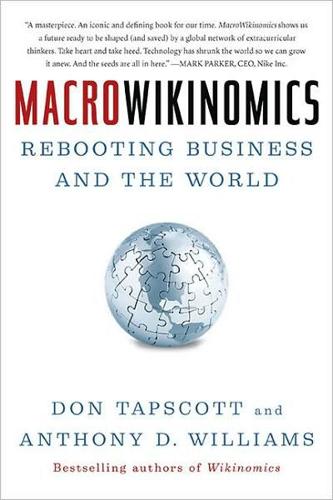
MacroWikinomics: Rebooting Business and the World
by
Don Tapscott
and
Anthony D. Williams
Published 28 Sep 2010
“Similarly we don’t have to be 100% certain that dangerous climate change will occur to take action to cut emissions.”7 Of course climate deniers, and those who see the world’s attempt to control climate change as a threat to their business interests, will continue to unleash their armies of lobbyists to water down policy, spread bogus science, and block innovations that might threaten their business models. But the best way to counter backroom lobbying and misinformation is not to hunker down as some climate scientists have in the wake of the climategate scandal (see chapter 9), but to foster greater transparency and open debate around the risks of not acting now. For instance, Palmer suggests that everyone concerned about the climate change issue, particularly those who are skeptical, ask themselves exactly how large the probability of serious climate change should be before we should start cutting emissions: 0.1 percent?
…
From decisions about whether to regulate a new technology, to the ongoing need to assess the impacts of urban development on the local ecology, objective scientific analysis is often central to the formulation of effective public policies. As the intermingling of science and public policy intensifies in an era of new global risks, questions about how scientists relate to the public and how the public relates to science are becoming critical. Nothing illustrates the challenges better than the recent “climategate” scandal in which a large stash of e-mails from and to investigators at the Climatic Research Unit of the University of East Anglia provided more than enough evidence for concern about the way some climate science is done. The science discussed in the e-mails is mostly from one small area of climate research—the taking of raw temperature data from thermometers, satellites, and proxy measures of historical climate such as tree rings and turning it into usable information on temperature trends.
…
The situation came to a head when the e-mail records of prominent climate scientists were stolen and then published, exposing years of heated and often unfortunate exchanges between climate researchers and the bloggers who were hounding them. Depending on your perspective there are two competing analyses of what “climategate” means, says Fred Pearce, an environment writer who led a major investigation into the controversy on behalf of the The Guardian.6 Climate scientists tend to see it as the mob storming the lab—the story of a malicious attempt to disrupt, cross-question, belittle, and trash the work of mainstream scientists.
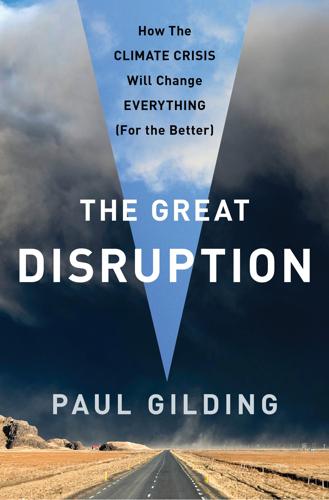
The Great Disruption: Why the Climate Crisis Will Bring on the End of Shopping and the Birth of a New World
by
Paul Gilding
Published 28 Mar 2011
There is organized skepticism, but it comes primarily from small groups that have banded together specifically for the purpose of promoting uncertainty, as opposed to the scientific bodies that are structured to apply their expertise objectively across a scientific discipline. These organized groups leap on any mistake, such as those detailed in the so-called Climategate e-mails, and pretend it has some greater significance regarding the whole process and conclusions, even though numerous independent reports and investigations concluded the Climategate e-mails did nothing to question the science of climate change.7 So it is important to separate the two types of skepticism. On the one hand, we have the scientific process, where outliers have a healthy role to play in challenging dominant views and seeking to find holes in consensus positions.
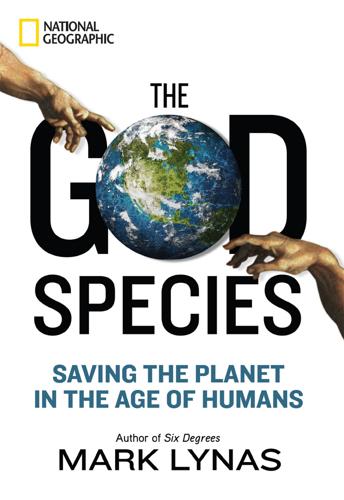
The God Species: Saving the Planet in the Age of Humans
by
Mark Lynas
Published 3 Oct 2011
Copycat think tanks and ideologues, again almost exclusively on the libertarian political right, quickly sprouted up in other countries too. Indeed, climate denialists became so successful in 2009 that they managed to dominate the media agenda via a series of manufactured scandals that engulfed much of the climate-science community. Deniers promoting the so-called “Climategate” affair took a few out-of-context quotes and superficially embarrassing private slips by leading scientists from some leaked emails and nearly managed to publicly discredit not only the Climatic Research Unit of the University of East Anglia but several other leading institutes too. Vociferous promoters of a subsequent scandal took a single mistake about Himalayan glaciers, buried deep in the second weighty tome of the IPCC’s 2007 Fourth Assessment Report, and used it to attack the entire IPCC process, and the role of Chair Rajendra Pachauri in particular.
…
cadmium calcium carbonate Calcutta Cambrian explosion Canada Cancún, UN climate change meeting, 2010 “cap and trade” programs carbon: cycle; offsetting/markets capture and storage (CCS); price; politics of; black carbon dioxide emissions: planetary boundary for Carbon Trade Watch cars see vehicles Cartagena Dialogue Cato Institute CFCs Cheatneutral.com Chernobyl Chesser, Robert China 21 coal power in; nuclear power in; dam construction; “night soil” industry; meat eating in; demand for fossil fuels; alternatives to high carbon aviation; hydroelectricity; virtual water and; pollution incidents; aerosol pollution; black carbon and; transport pollution; emissions standards; CFC production; Copenhagen summit and; population growth; vehicle ownership, growth in emissions; food production; investment in low-carbon technologies Chinese Academy for Environmental Planning Climate Action Network Climate Action Partnership climate change: carbon offsetting/markets and; deniers; extinction and; boundary see climate change boundary; tipping points; methane and; agreements/negotiations; nitrates worsen; solar radiation management and; see also carbon dioxide emissions, China, individual agreement/negotiation name, nuclear power, population, renewables under individual event and area name climate change boundary; 350: current evidence; 350: modeling evidence; 350: past evidence; toward a technofix?; technologies for new technologies for the future; politics of carbon; sea level rise; Arctic thaw and; destabilization of Atlantic Ocean circulation; models Climate Fix, The (Pielke Jnr) “Climategate”, 2009 Climatic Research Unit, University of East Anglia Clinton, Bill Club of Rome coal power Cochabamba, Bolivia Collapse (Diamond) Colorado River Commission for the Conservation of Atlantic Tunas Condit Dam Congo Basin Forest Fund Congress, US Convention on Biological Diversity, Nagoya, 2010 Convention on Long-range Transboundary Air Pollution, 1979 COP15 of the UN Framework Convention on Climate Change Copenhagen Accord Copenhagen climate summit, 2009 coral reefs Corporate Watch Costa Rica Costanza, Robert Cretaceous Period Crookes, William Crutzen, Paul Current Opinion in Plant Biology Cyclone Nargis Da Silva, Luiz Inácio Lula Dai, Aiguo Daly, Herman Dampier, William dams, removing unnecessary; hydroelectric; Chinese construction of; fishery collapse and; tidal barrages; block natural flow of water; threaten species; affects water temperature; water trapped behind loses most of its sediment load; current water use; where water is taken from Danish Committee on Scientific Dishonesty DDT Dead Sea dead zones deep-sea floating turbines deforestation Delta smelt “demographic transition” Dhaka Diamond, Jared diesel engines Dinorwig, Wales DuPont Earth: goldilocks state; self-regulating; “snowball”; ice-albedo feedback; see also carbon: cycle “earthshine” East Antarctic Ice Sheet Economics of Ecosystems & Biodiversity, The (TEEB) report, 2010 Economist Ecuador Edwards Dam Egypt electric vehicles Endangered Species Act, U.S.
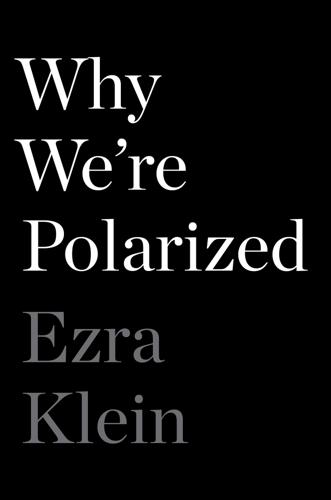
Why We're Polarized
by
Ezra Klein
Published 28 Jan 2020
Disentangling Party and Ideology in America,” American Political Science Review 113, no. 1 (Feb. 2019): 38–54, doi.org/10.1017/S0003055418000795. 9 Justin Amash, “Justin Amash on Trump, Impeachment, and the Death of the Tea Party,” interview by Jane Coaston, Vox, July 3, 2019, vox.com/policy-and-politics/2019/7/3/18759659/justin-amash-trump-impeachment-gop-tea-party-republicans. 10 Jeffrey Gottfried, Michael Barthel, and Amy Mitchell, “Trump, Clinton Voters Divided in Their Main Source for Election News,” Pew Research Center, January 18, 2017, journalism.org/2017/01/18/trump-clinton-voters-divided-in-their-main-source-for-election-news. 11 Rob Faris et al., “Partisanship, Propaganda, and Disinformation: Online Media and the 2016 U.S. Presidential Election,” Berkman Klein Center, Harvard University, August 16, 2017, cyber.harvard.edu/publications/2017/08/mediacloud. 12 Rush Limbaugh, “Climategate Hoax: The Universe of Lies versus the Universe of Reality,” Rush Limbaugh Show, November 24, 2009, rushlimbaugh.com/daily/2009/11/24/climategate_hoax_the_universe_of_lies_versus_the_universe_of_reality/. 13 Matt Grossmann and David A. Hopkins, “How Information Became Ideological,” Inside Higher Ed, October 11, 2016, insidehighered.com/views/2016/10/11/how-conservative-movement-has-undermined-trust-academe-essay. 14 David Roberts, “Donald Trump and the Rise of Tribal Epistemology: Journalism Cannot Be Neutral Toward a Threat to the Conditions That Make It Possible,” Vox, May 19, 2017, vox.com/policy-and-politics/2017/3/22/14762030/donald-trump-tribal-epistemology. 15 David Roberts, “Donald Trump Is the Sole Reliable Source of Truth, Says Chair of House Science Committee: ‘Better to Get Your News Directly from the President,’ said Rep.
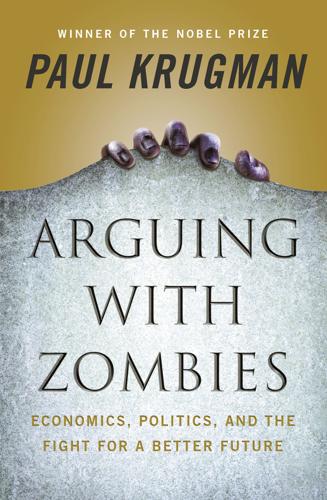
Arguing With Zombies: Economics, Politics, and the Fight for a Better Future
by
Paul Krugman
Published 28 Jan 2020
That kind of conspiracy theorizing has long been standard practice among climate deniers, who began calling the evidence for global warming—evidence that has convinced 97 percent of climate scientists—a “gigantic hoax.” What was the evidence for this vast conspiracy? A lot of it rested on, you guessed it, hacked emails. The credulousness of all too many journalists about the supposed misconduct revealed by “Climategate,” a pseudo-scandal that relied on selective, out-of-context quotes from emails at a British university, prefigured the disastrous media handling of hacked Democratic emails in 2016. (All we learned from those emails was that scientists are people—occasionally snappish, and given to talking in professional shorthand that hostile outsiders can willfully misinterpret.)
…
W., 306 Bush, George W., 276, 381 and election (2000), 387 on health care, 47 as movement conservative, 299, 301 and national security, 306 and taxes, 215–16, 229, 299 Bush, Jeb, 60, 381 Bush (W.) administration: authoritarianism of, 301 bait-and-switch tactics of, 378–79, 387 compared to that of Trump, 9, 13 corruption of, 343 disdain for rule of law, 301 dishonesty of, 9, 25, 26–27, 93, 343, 377–78, 389 functions outsourced by, 299–300 general incompetence of, 300 and income distribution, 271 and Iraq war, 13, 26, 27, 299, 343, 381 reliance on elite consensus, 14 on Social Security privatization, 14–15, 22–24, 25–27, 28–29, 32, 302, 306, 361, 377, 378 tax cuts by, 16–17, 20, 26, 50 torture authorized by, 300 voting rights curtailed by, 300 business decisions, 227–28 California: health care in, 77 housing bubble in, 84 taxes in, 216, 229 Canada: health care in, 36, 45, 47, 48–49 imports from, 253, 255 unions in, 290 Cantor, Eric, 302–4, 386 cap-and-trade system, 339 Capital Asset Pricing Model (CAPM), 135–36 capital gains: on houses, 87, 274 and income inequality, 273–74 inflation component of, 273 capitalism, voter confusion about, 320 capital market, 228 Capitol Hill Baby-Sitting Co-op, 137–38 carbon emissions, tax on, 339 Carter, Jimmy, 276 Cato Institute, 22, 23, 317, 320 caution, risk of, 104, 106, 107, 116–17 Cavuto, Neil, 44 Census data, 262–65, 263 capital gains omitted from, 264 Current Population Survey, 263, 264 and income distribution, 265–66, 266 top-coding, 264, 265 Center for a Responsible Federal Budget (CRFB), 193 central banks, 103–4, 124, 128, 133, 181, 182, 409–10 centrists, 308 belief in symmetry between left and right, 28, 29, 309 double standards of, 208–9 influence of, 28 and public opinion, 298, 306 Century Foundation, 22 CEOs, compensation for, 259, 262, 265 Chandler, Raymond, The Simple Art of Murder, 327 Charity Watch, 388 Chávez, Hugo, 324 Cheney, Dick, 300, 381 Chicago School, 131, 143–44 child care, proposals on, 210, 211, 212 Chile, retirement system in, 22, 23 China: economy of, 324 U.S. trade with, 252, 254, 255 cholera, 81 Civil Rights Act (1964), 53 civil rights movement, 346 classless society, myth of, 285 climate change, 327–28 and alternative energies, 340 and corruption, 337 deniers of, 329–31, 332–34, 335–37, 365 and fossil fuels, 333, 336 global temperatures in, 330 greenhouse gases as a cause of, 330, 335, 339–40 and Green New Deal, 328, 338–40 “hockey stick” graph on, 328, 336 politicization of, 4 positive incentives in, 340 transition industries in, 340 and tropical storms, 330 Climategate, 336 Clinton, Bill: Gingrich’s attacks on, 362 and health care (1993), 35, 37, 50, 378 and income inequality, 271 smear tactics against, 380 and taxes, 7, 215 Clinton, Hillary: and election (2016), 376, 388–89 and health care, 50, 51–52 and income inequality, 291 smear tactics against, 380 Trump vs., 336, 343 Clinton Foundation, 388 “Closing the Skills Gap” (Dimon and Seltzer), 166–68 Coal and Steel Community (1952), 175 coal-fired power plants, 331 coal mining, 289, 340 Cochrane, John H., 131, 138, 143 cockroach ideas, 329 Cohen, Michael, 359 Cohn, Jonathan, 300 coins: gold and silver, 411, 412 college graduates, earnings of, 282, 283 Collins, Susan, 360 Comey, James, 336, 343 Coming Apart: The State of White America, 1960–2010 (Murray), 285–86 Commission on Economic Security (1934), 26 Common Market (1959), 175 Commonwealth Fund, 48 competition: imperfect, 400 perfect, 402 “confidence fairy,” belief in, 158, 160, 161 Congressional Budget Office (CBO), 19, 29, 54, 59, 195–96 budget and economic outlook of, 115–16 Green Book of, 265 and income inequality, 265–66, 266, 272–74, 285 and Ryan plan, 201, 202 Conscience of a Conservative, The (Goldwater), 300 conservatism: ambition of practitioners, 151 bad faith of, 7, 8, 10, 75, 149–51, 332–33 and bipartisanship, 198 compassionate conservatism, 378 confusion about socialism in, 323 democracy rejected by, 369 disinterest in good government, 300 and income inequality, 261–62, 266, 271–75 and Keynesian economics, 124 moral and intellectual decline of, 262 movement conservatism, 8, 297–98, 299–301, 302–4, 307, 343, 368 Orwellian instincts in, 281 permanent rule by, 13 Republican, see Republican Party taking credit for growth, 275–76 uses and abuses of statistics by, 262 wing-nut welfare as safety net for, 303 conservative professional economists, 149–51 conspiracy theories, 150, 337, 343, 345–46, 365 Constitution, U.S., 301 containerization, 289 Cornyn, John, 346 corporate profits, 228, 232–33 corporate taxes: avoidance vs. evasion of, 349 cuts in, 201, 202, 218, 221, 222, 227, 229, 230, 231–33, 232, 351 and stock buybacks, 227, 230 corporations: “bringing money home,” 230 cooking their books, 228, 230–31, 231 global, 231–32 profits to foreign nationals, 232–33 and trade war, 371 unrestricted power for, 318 corruption: and Bush administration, 343 and climate change, 337 in Europe, 358 in financial services, 92, 93 in highly unequal societies, 283, 324, 349–50, 358 and Republican Party, 335–37, 338, 343, 358 in trade policy, 246, 247, 254, 255 of Trump administration, 70, 246, 331, 338, 343, 349, 350 “Cost of Bad Ideas, The” (Krugman), 123–25 Council of Economic Advisers, and CEA calculation, 271–72 Cox, Christopher, 93 credit, 89, 90, 104 “Cruelty Caucus, The” (Krugman), 65–66 Cruz, Ted, 57, 225 Cruz amendment, 69 cryptocurrencies, 411–14 Crystal, Graef, 265 In Search of Excess, 262 Cuccinelli, Ken, 336 currency, 412–14 fiat, 412, 414 optimum currency areas, 177 Customs and Border Protection, 371 debt: and austerity policies, 97–99, 163–65, 203–4, 207–8 fear of, 107, 116 and G.D.P., 154, 204–5, 205 interest rates on, 204, 211 magic threshold of, 158, 385 overrated as issue, 194, 206, 208 problematic, 153 and sustainable growth rate, 153–54, 204 and taxes, 154, 222–23, 224–26 tipping point of, 165 and total wealth, 154 Trump’s SOTU on, 207–9 winter of, 203–6 “debt scolds,” 204, 205, 206 “deficit scolds,” 194, 207, 209 deficit spending, 153, 218 deleveraging, 97 DeLong, Brad, 131, 143–44, 270, 316, 407 democracy: threats in Europe to, 188, 189, 344, 346, 358, 359 threats in U.S. to, 366, 367–69 Democratic Party: basic values of, 366 center-left position of, 28, 306, 310 and civil rights, 310 future plans for, 338 and Green New Deal, 338–40 and health care, 36, 55, 77, 78 House majority of, 338 impact in state governments, 77, 78 as loose coalition of interest groups, 297, 368 and midterm elections, 76, 194, 338, 344, 367 policy analysis by, 73 social democratic aspect of, 313–14, 321 and Social Security, 29, 30 subpoena power of, 338 De-Moralization of Society (Himmelfarb), 285–86 Denmark, economy of, 184, 239, 313, 317, 319–21, 323 deregulation, 370, 371, 409 derivatives, 135 “Developing a Positive Agenda” (Krugman), 35–37 Dew-Becker, Ian, 283 Diamond, Peter, 234–35, 236 diminishing marginal utility, 235 Dimon, Jamie, 166 dishonesty, power of, 324 “Dismal Science, The” (Krugman), 393–94 Dixit, Avinash K., 396–98, 405 dollar, international value of, 228 Donors Trust, 333 “Don’t Blame Robots for Low Wages” (Krugman), 260, 288–90 dot-com bubble, 90 double talk, political, 222, 225–26 Dow 36,000 (Gleason and Hassett), 84, 86 Draghi, Mario, 181–83 dumping, and tariffs, 252 Duncan, Greg, 277 economic analysis, importance of, 383–84, 386, 400 economic freedom, 317–18, 317 economic geography, 398–99, 400, 403 economic growth: (1982–1984), 215 long-term, 275–76 post–World War II, 219, 234 so-so, 315 taking credit for, 275–76 and taxes, 236–37, 236 economic models: Arrow-Debreu model, 402 CAPM, 135–36 Heckscher-Ohlin, 400–401, 403 importance of, 400 as metaphors, 400, 402 minimalist, 403 monopolistic competition models, 396–98 and neoclassical theory, 140 purposes of, 112 economic policy, failure of, 407 economics: behavioral, 146 easy questions in, 6 golden era of, 130–31 Keynesian, see Keynesian economics mathematics in, 131 monetary, 176 “neoclassical,” 132, 133, 139–40, 147 and politics, 149–51 “positive” vs.
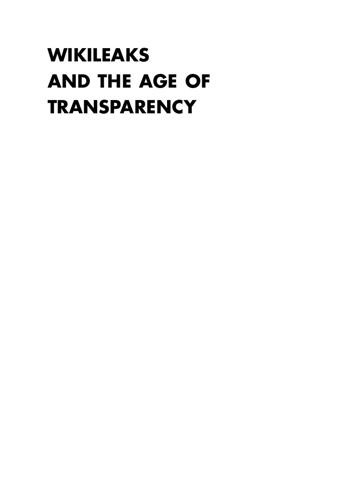
WikiLeaks and the Age of Transparency
by
Micah L. Sifry
Published 19 Feb 2011
“Hillary Clinton, and several thousand diplomats around the world are going to have a heart attack when they wake up one morning, and find an entire repository of classified foreign policy is available, in searchable format, to the public,” Manning reportedly wrote Lamo. “Everywhere there’s a U.S. post, there’s a diplomatic scandal that will be revealed,” Manning wrote. “It’s open diplomacy. World-wide anarchy in CSV format. It’s Climategate with a global scope, and breathtaking depth. It’s beautiful, and horrifying.” The recipient of these leaks, Manning told Lamo at one point in the transcript: “a crazy white haired aussie who can’t seem to stay 32 MICAH L. SIFRY in one country very long.” Later he made it explicit: “Crazy white haired dude = Julian Assange.”14 (Despite this apparent statement, as of late January 2011 government investigators had reportedly not yet found a way to connect Manning directly to Assange.)15 Why did Manning allegedly do it?
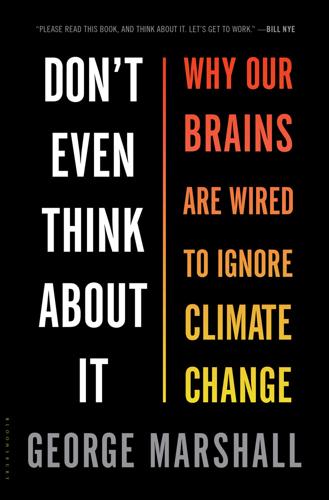
Don't Even Think About It: Why Our Brains Are Wired to Ignore Climate Change
by
George Marshall
Published 18 Aug 2014
The most effective and deliberate linguistic framing occurred in November 2009 when the server of the Climate Research Unit of the University of East Anglia was hacked into and fragments from a thousand e-mails were pieced together by climate deniers into a grand narrative of conspiracy, manipulation, and suppression of dissent. They dully dubbed it Climategate (the rival term Climaquiddick never took off), and within a week this new word had appeared more than nine million times across the Internet. This was hardly a moment of great linguistic originality, following, as it did, the previous manufactured scandals of Nannygate, Nipplegate, Grannygate, Flakegate, Tunagate, Biscuitgate, and Pastagate.
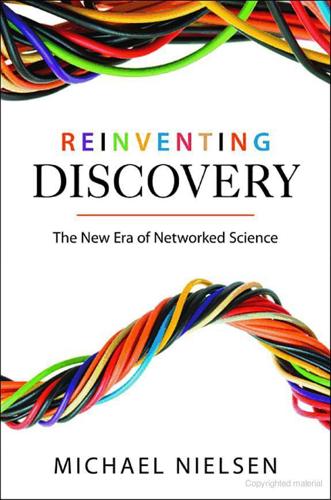
Reinventing Discovery: The New Era of Networked Science
by
Michael Nielsen
Published 2 Oct 2011
[42] Hyunyoung Choi and Hal Varian. Predicting the present with Google trends. Google Research blog, April 12, 2009. http://googleresearch.blogspot.com/2009/04/predicting-present-with-google-trends.html. [43] Andy Clark and David J. Chalmers. The extended mind. Analysis, 58:10–23, 1998. [44] “Climategate” exposed: Conservative media distort stolen emails in latest attack on global warming consensus. Media Matters, December 1, 2009. http://mediamatters.org/research/200912010002. [45] Robert P. Colwell. The Pentium Chronicles. Hoboker, NJ: IEEE Computer Society, 2006. [46] Seth Cooper, Firas Khatib, Adrien Treuille, Janos Barbero, Jeehyung Lee, Michael Beenen, Andrew Leaver-Fay, David Baker, Zoran Popović & Foldit players.

The End of Secrecy: The Rise and Fall of WikiLeaks
by
The "Guardian"
,
David Leigh
and
Luke Harding
Published 1 Feb 2011
“Everywhere there’s a US post, there’s a diplomatic scandal that will be revealed. Iceland, the Vatican, Spain, Brazil, Madagascar: if it’s a country, and it’s recognised by the US as a country, it’s got dirt on it. It’s open diplomacy, world-wide anarchy in CSV format [a simple text format]. It’s Climategate with a global scope, and breathtaking depth. It’s beautiful, and horrifying, and it’s important that it gets out. I feel for some bizarre reason it might actually change something. I just don’t wish to be a part of it, at least not now … I’m not ready. I wouldn’t mind going to prison for the rest of my life, or being executed so much, if it wasn’t for the possibility of having pictures of me plastered all over the world press as a boy.
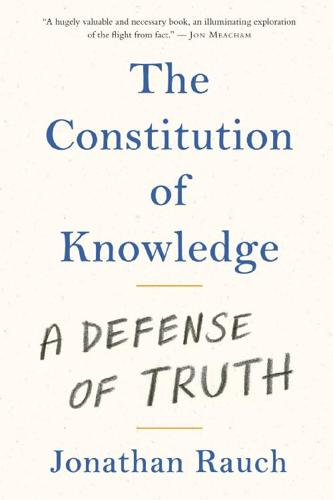
The Constitution of Knowledge: A Defense of Truth
by
Jonathan Rauch
Published 21 Jun 2021
Glenn Kessler and Scott Clement, “Trump Routinely Says Things That Aren’t True. Few Americans Believe Him,” Washington Post, December 14, 2018. 48. Rush Limbaugh, “The Four Corners of Deceit: Prominent Liberal Social Psychologist Made It All Up,” transcript of syndicated radio broadcast of April 29, 2013. Accessed via RushLimbaugh.com. 49. Rush Limbaugh, “ClimateGate Hoax: The Universe of Lies Versus the Universe of Reality,” transcript of syndicated radio broadcast of November 24, 2009. Accessed via RushLimbaugh.com. 50. Quoted in “Hacks at Work,” The Economist, February 23, 2008. 51. Alex Clark, “Breitbart’s Boyle: ‘Our Goal Is the “Elimination of the Entire Mainstream Media,’ ” Breitbart News, July 19, 2017. 52.
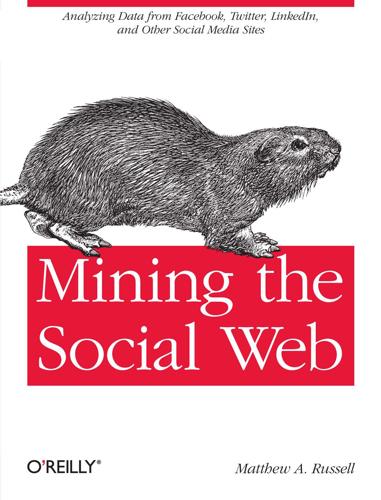
Mining the Social Web: Finding Needles in the Social Haystack
by
Matthew A. Russell
Published 15 Jan 2011
@n2vip You've obviously never read an ebook on the iPhone. It's a great reading ... @n2vip I wasn't suggesting that insurance was the strange world, just that you ... @n2vip In high tech, there is competition from immigrant workers. Yet these two ... @n2vip How right you are. We really don't do a good job teaching people ... @n2vip The climategate stuff is indeed disturbing. But I still hold by what ... @n2vip FWIW, I usually do follow links, so do include them if appropriate. Thanks. @n2vip I don't mind substantive disagreement - e.g. with pointers to real info ... @n2vip Totally agree that ownership can help. But you need to understand why ...
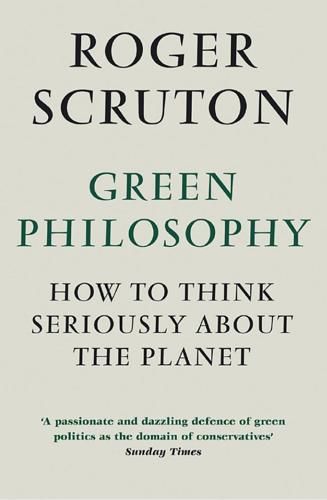
Green Philosophy: How to Think Seriously About the Planet
by
Roger Scruton
Published 30 Apr 2014
The report was published as The Economics of Climate Change, Cambridge, 2007. The report forms the background to the wide-ranging discussions in Dieter Helm and Cameron Hepburn, eds., The Economics and Politics of Climate Change, Oxford, 2010. 55 See www.climatedepot.com, where information concerning what is fast becoming known (alas) as the ‘climategate’ scandal is triumphantly blazoned. 56 BBC News, 5 February 2010. Pachauri (who is also director of the Yale Climate and Energy Institute) has responded to criticism in Yale Environment 360, 20 April 2010. 57 See Richard S. Lindzen and Yong-Sang Choi, ‘On the Determination of Climate Feedbacks from ERBE Data’, Geophysical Research Letters, 36.16, August 2009, and Roy W.
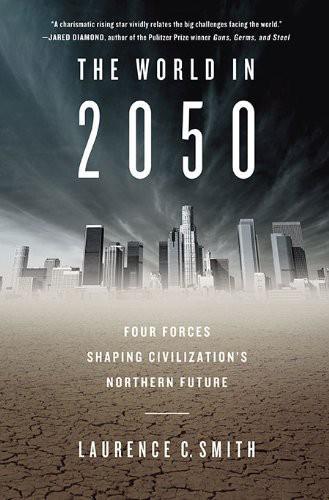
The World in 2050: Four Forces Shaping Civilization's Northern Future
by
Laurence C. Smith
Published 22 Sep 2010
(AIG), Boston Scientific Corporation, Chrysler LLC, ConocoPhillips, Deere & Company, the Dow Chemical Company, Exelon Corporation, Ford Motor Company, General Motors Corporation, Johnson & Johnson, Marsh, Inc., the National Wildlife Federation, the Nature Conservancy, NRG Energy, Inc., PepsiCo, Rio Tinto, Shell, Siemens Corporation, and Xerox Corporation.41 However, by late 2009 the rush of corporations to join the U.S. Climate Action Partnership had slowed, following the failed climate treaty conference at Copenhagen, some dumb e-mails circulated among a clique of climate scientists (the so-called Climategate scandal, a scientifically minor but politically devastating public-relations fiasco), and a moribund cap-and-trade bill in the U.S. Senate. By 2010 ConocoPhillips, BP America, Caterpillar, and Xerox had pulled out. Gas molecules are impervious to politics, so all of this is really just the beginning.
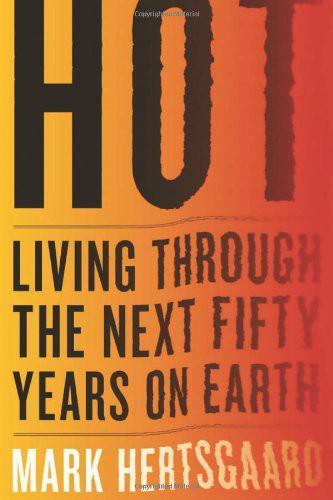
Hot: Living Through the Next Fifty Years on Earth
by
Mark Hertsgaard
Published 15 Jan 2011
Bottom line: the AP found zero evidence of fraud, a conclusion later shared by two official investigations by British government bodies. In the words of the AP's headline, "Science Not Faked, but Not Pretty." But by the time that AP story was published, the rest of the media had embraced the deniers' framing of the controversy as "Climate-gate," thus implicitly endorsing the notion that evil deeds were afoot and amplifying the underlying suggestion that climate science was bunk. A few weeks later, news outlets again advanced the deniers' agenda when they repeatedly devoted ominous headlines to a handful of inaccuracies discovered in the IPCC's Fourth Assessment Report, including the mistaken assertion that the Himalayan glaciers could disappear by 2035.
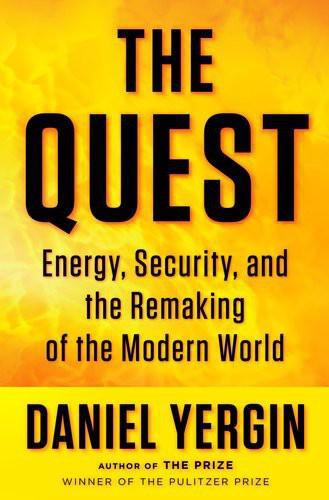
The Quest: Energy, Security, and the Remaking of the Modern World
by
Daniel Yergin
Published 14 May 2011
And given the meltdown on Wall Street, some were hardly enthusiastic about creating a vast new financial market in trading carbon. After the Republicans won the House of Representatives in 2010, a climate legislation became even less likely. “THE HEALTH OF THE HIMALYAS” More or less concurrent with Copenhagen was a chipping away of the credibility of the IPCC itself. In what became known as climategate, somebody hacked into the e-mails of the Climatic Research Unit at the University of East Anglia in England, which was one of the main research centers supporting climate research and the work of the IPCC. To many climate scientists and activists, the e-mails were being taken out of context and grossly misconstrued.
…
climate activism, rise of climate change Agassiz and biofuels and Callendar and Cancún meeting and carbon and cars and China and company green credentials and Congress and Copenhagen conference and Earth Summit and Gleneagles summit and global cooling and Great Britain and hot box and hot summer of 1988 and the White House effect and ice ages and International Geophysical Year and IPCC and Keeling and his curve and Kyoto Protocol and large-scale geophysical experiment and markets and, see market-based solutions Montreal Protocol and as new energy question Nobel Prize and ozone hole and renewables and Revelle and S. Arrhenius and Sassure and science meets policy and shale gas and as strategic threat Sundsvall meeting and Thatcher and twenty-one questions and Tyndall and Venus and Woods Hole meeting and see also global warming Climate Change Science Program “climategate,” Climate Science Technology Program Clinton, Bill climate change and in election of 1992 Iran policy and renewables and Clinton, Hillary Club of Rome Club of Rome Report (1972) CNN effect CNOOC (China National Offshore Oil Corporation) CNPC, see China National Petroleum Corporation coal carbon and disappearance of for electricity as fuel choice high vs. low sulfur Kelvin’s fears about lignate Mitchell’s views on oil made from pollution from reduction in use of Royal Navy’s move to oil from synfuels from see also specific countries coal gas (town gas) Coalition Provisional Authority Coase, Ronald Cocconi, Al Coda Cold War end of Cole, USS Colorado Columbus, Christopher combined-cycle gas turbines “Coming Ice Age, The” (Friedan) command-and-control regulation commodity index funds Commonwealth Edison communications electricity and international Communist Party, Chinese computers cyberattack and Comsat concentrated solar power Congress, U.S.

Doppelganger: A Trip Into the Mirror World
by
Naomi Klein
Published 11 Sep 2023
“media darling”: Naomi Wolf, “The Last Stage of a Tyrannical Takeover—Interview with Naomi Wolf,” interview by Joseph Mercola, June 1, 2022. “I never thought I would be talking to you”: Tucker Carlson, “Naomi Wolf Sounds Alarm at Growing Power of ‘Autocratic Tyrants.’” one of Britain’s most vocal climate change deniers: James Delingpole, “‘Climategate Was Fake News,’ Lies the BBC…,” Breitbart, July 11, 2019, posted on the Internet Archive’s Wayback Machine. “This is so unlikely”: James Delingpole, “Naomi Wolf,” The James Delingpole Podcast, May 3, 2021, 0:25–1:04. “I spent years thinking you were the devil”: Steve Bannon, host, “Not Science Fiction … Dr.
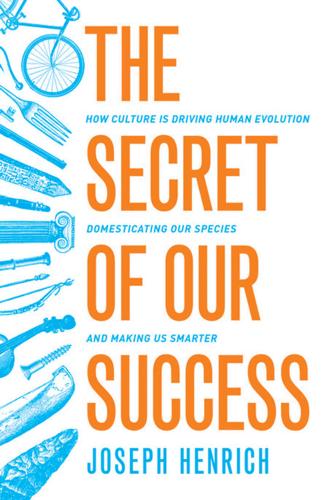
The Secret of Our Success: How Culture Is Driving Human Evolution, Domesticating Our Species, and Making Us Smarter
by
Joseph Henrich
Published 27 Oct 2015
However, cultural transmission with limited memories favors breaking things down—compositionality—in ways that are easy to remember (Brighton, Kirby, and Smith 2005). Maybe the process was something like how “-gate” in “Watergate Hotel” got broken off and redeployed to mean “scandal,” as in Monicagate and Climategate. Individuals who begin breaking things down in ways that are easily learnable for others will be more successful and be more likely to be imitated. Languages with compositionality (words) will persist and outcompete noncompositional languages. 32. See Kirby, Christiansen, and Chater 2013, Smith and Kirby 2008, Kirby, Cornish, and Smith 2008, and Christiansen and Chater 2008. 33.